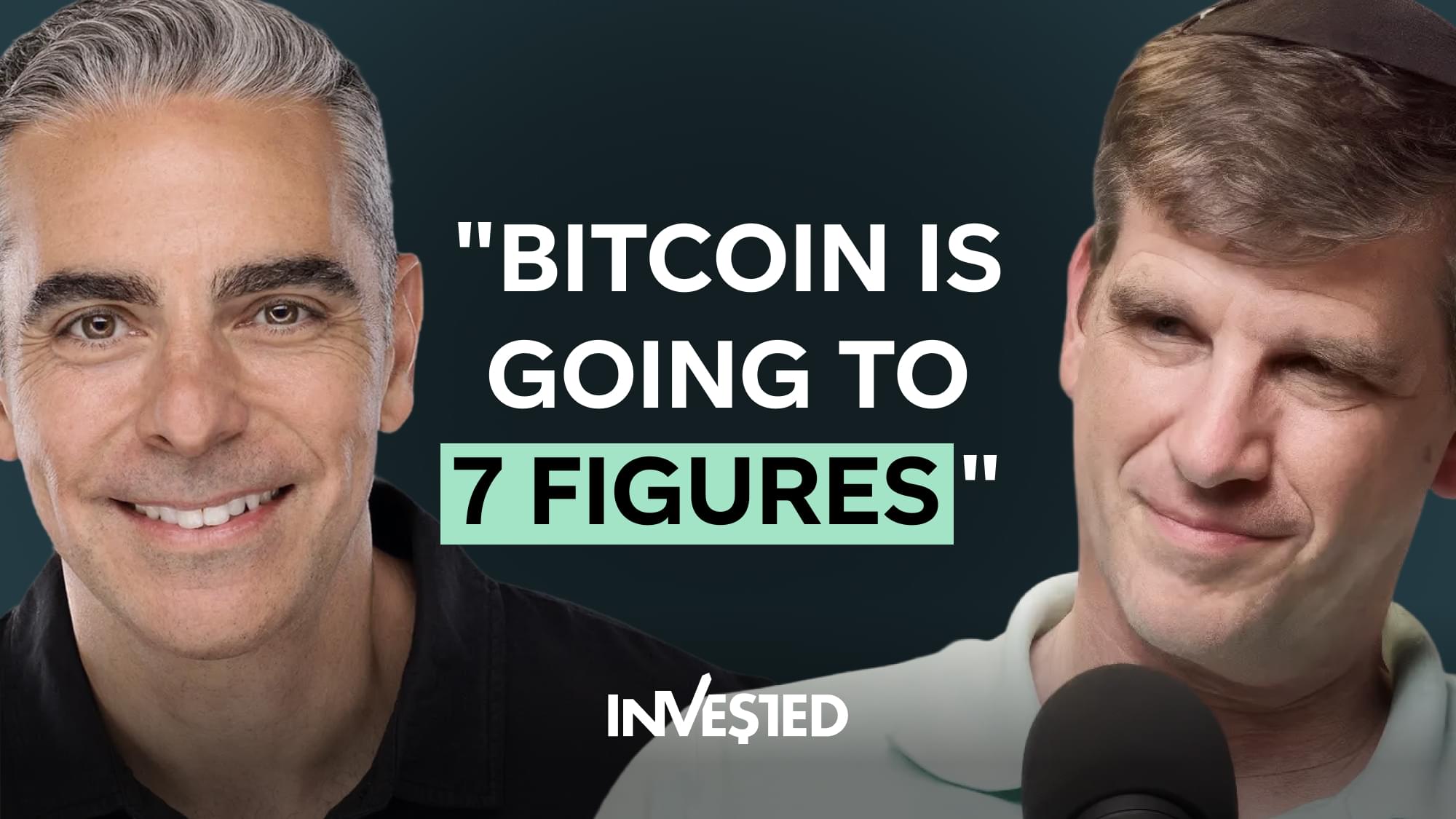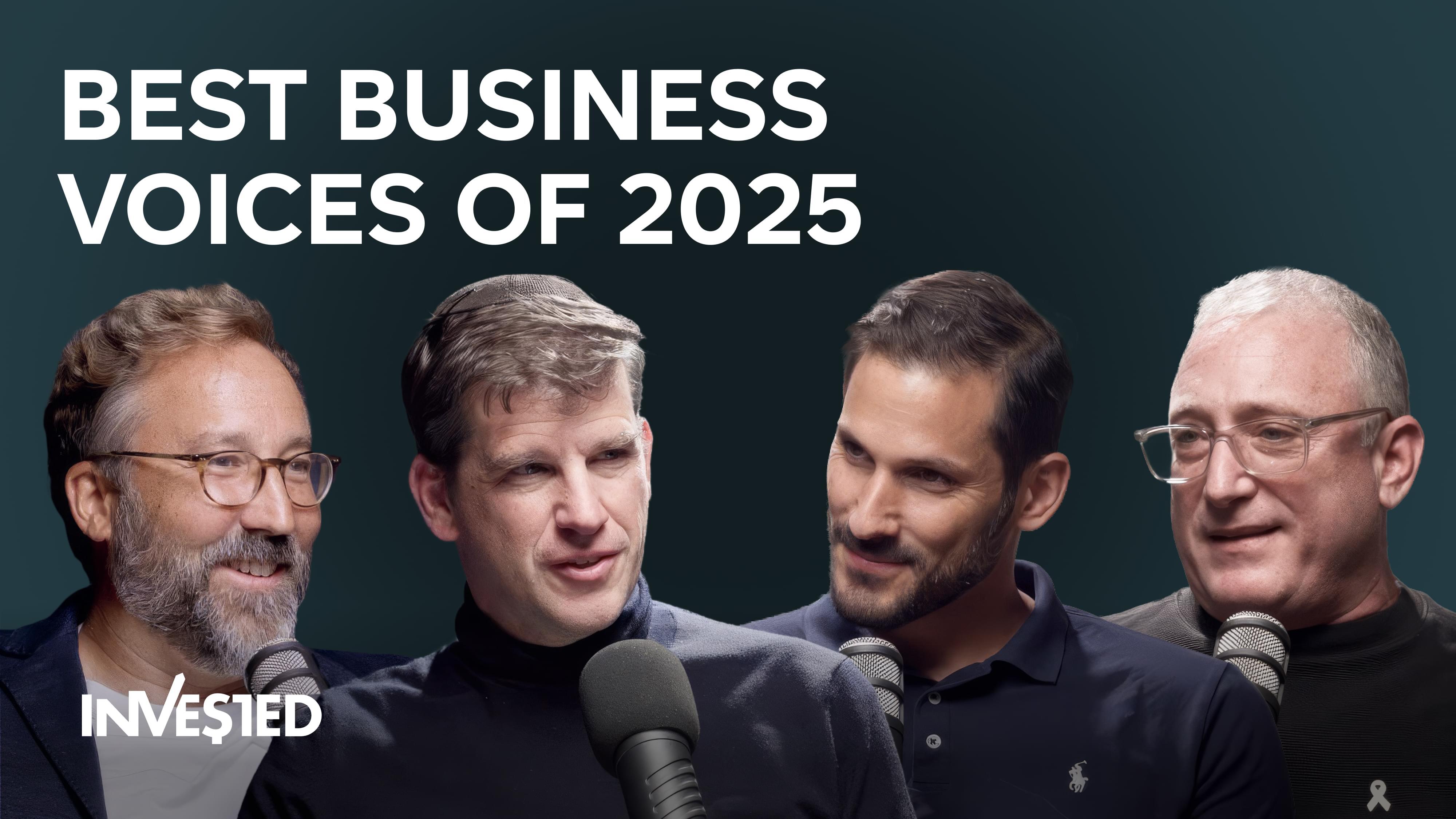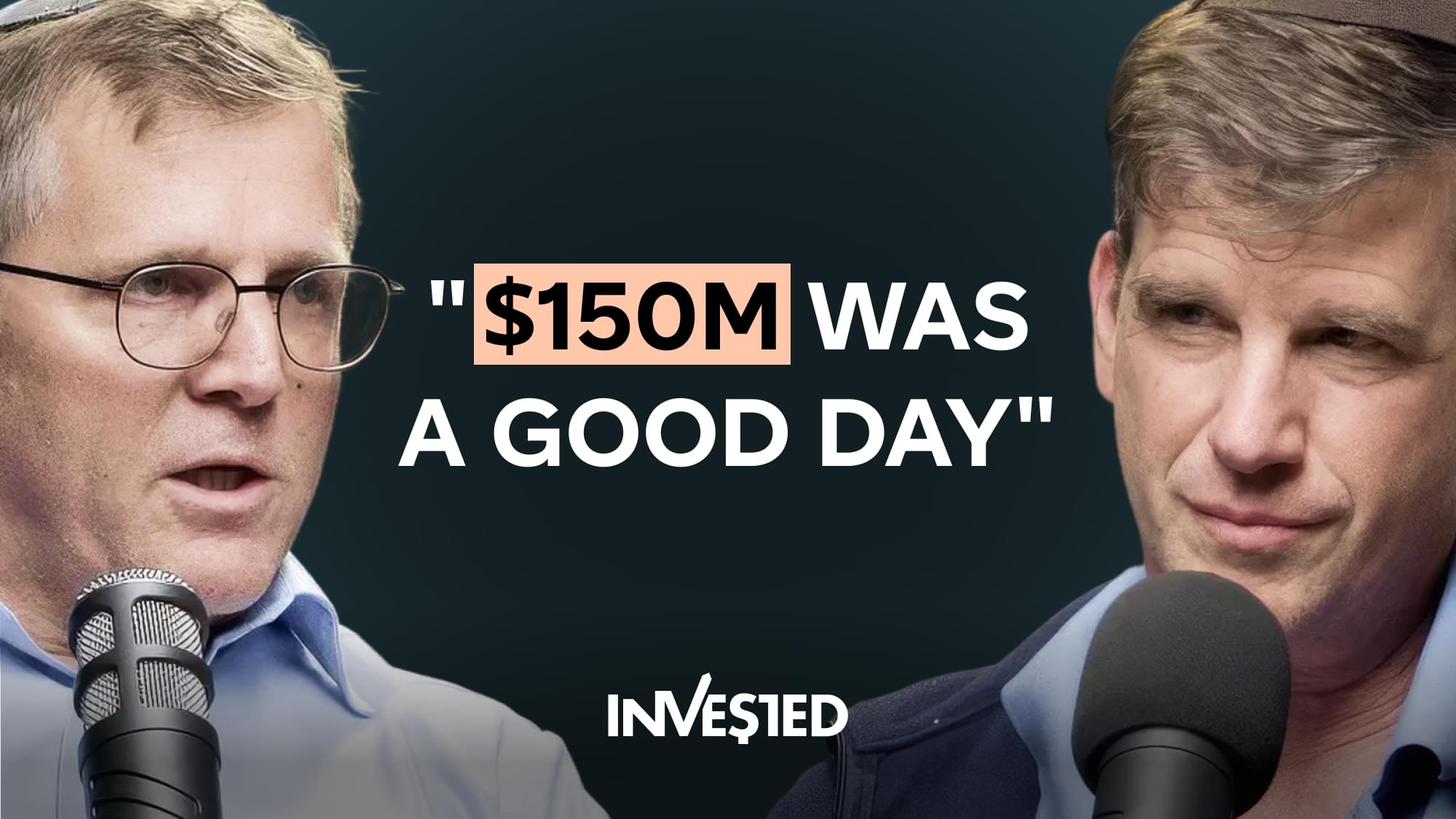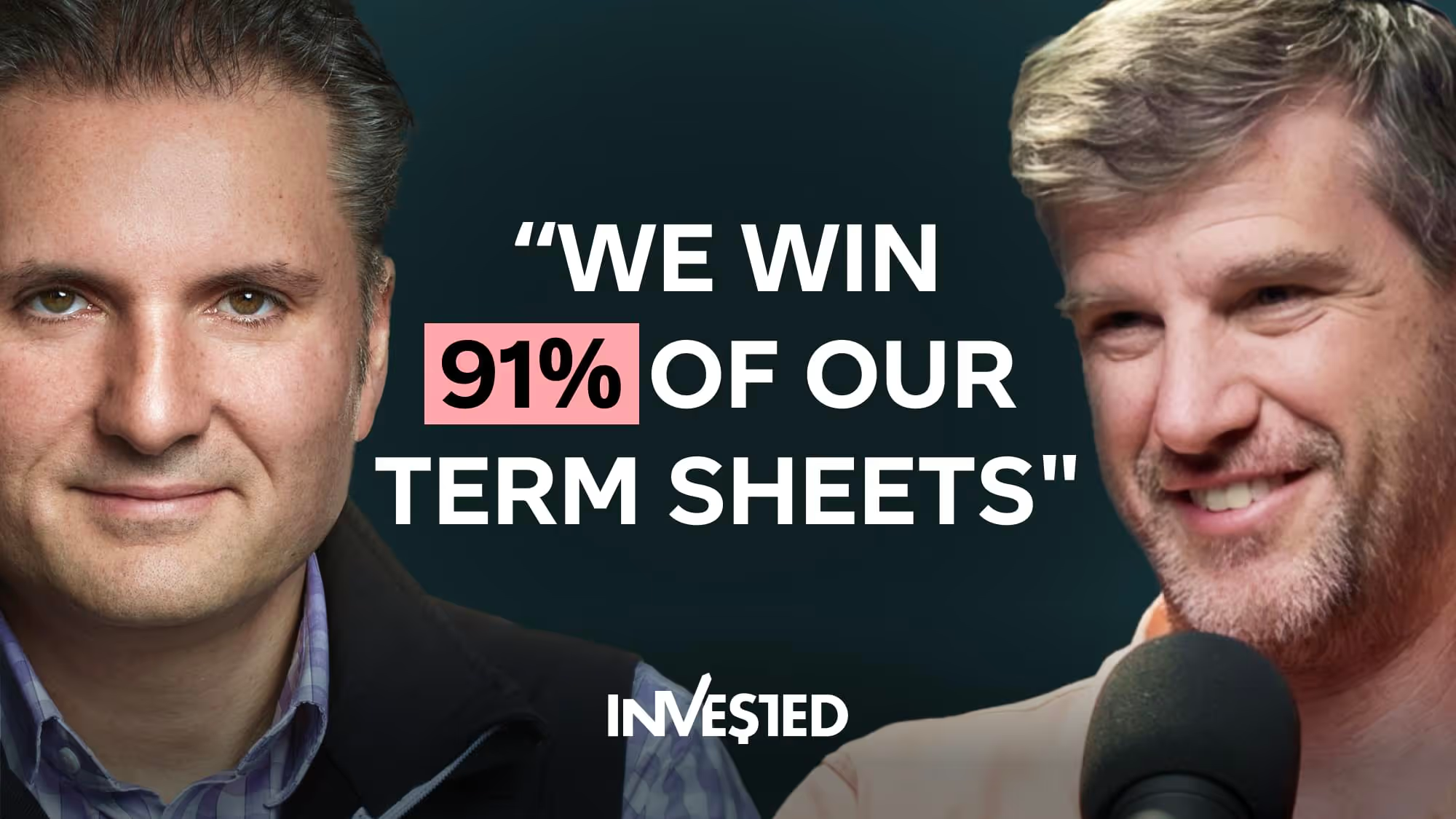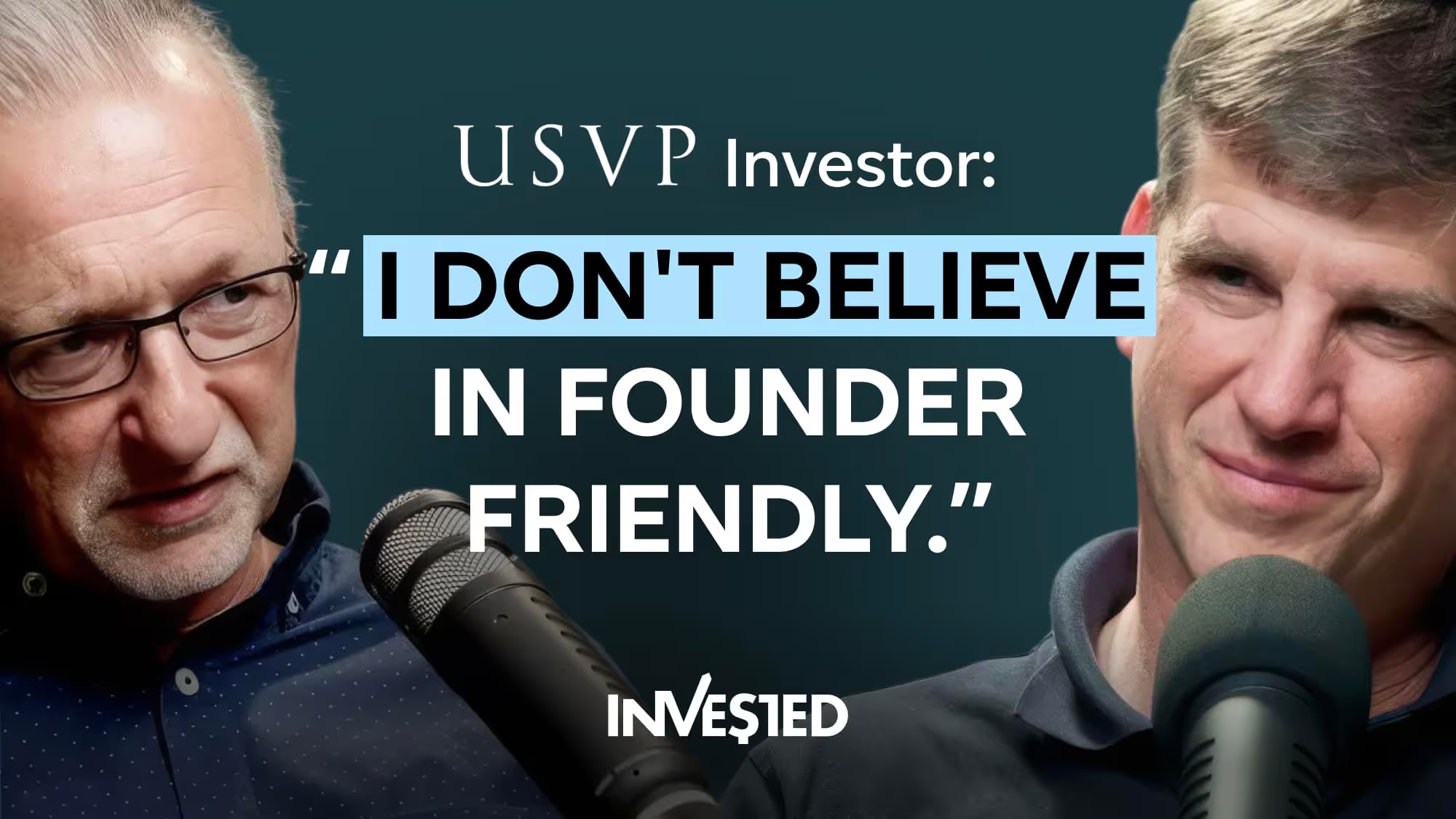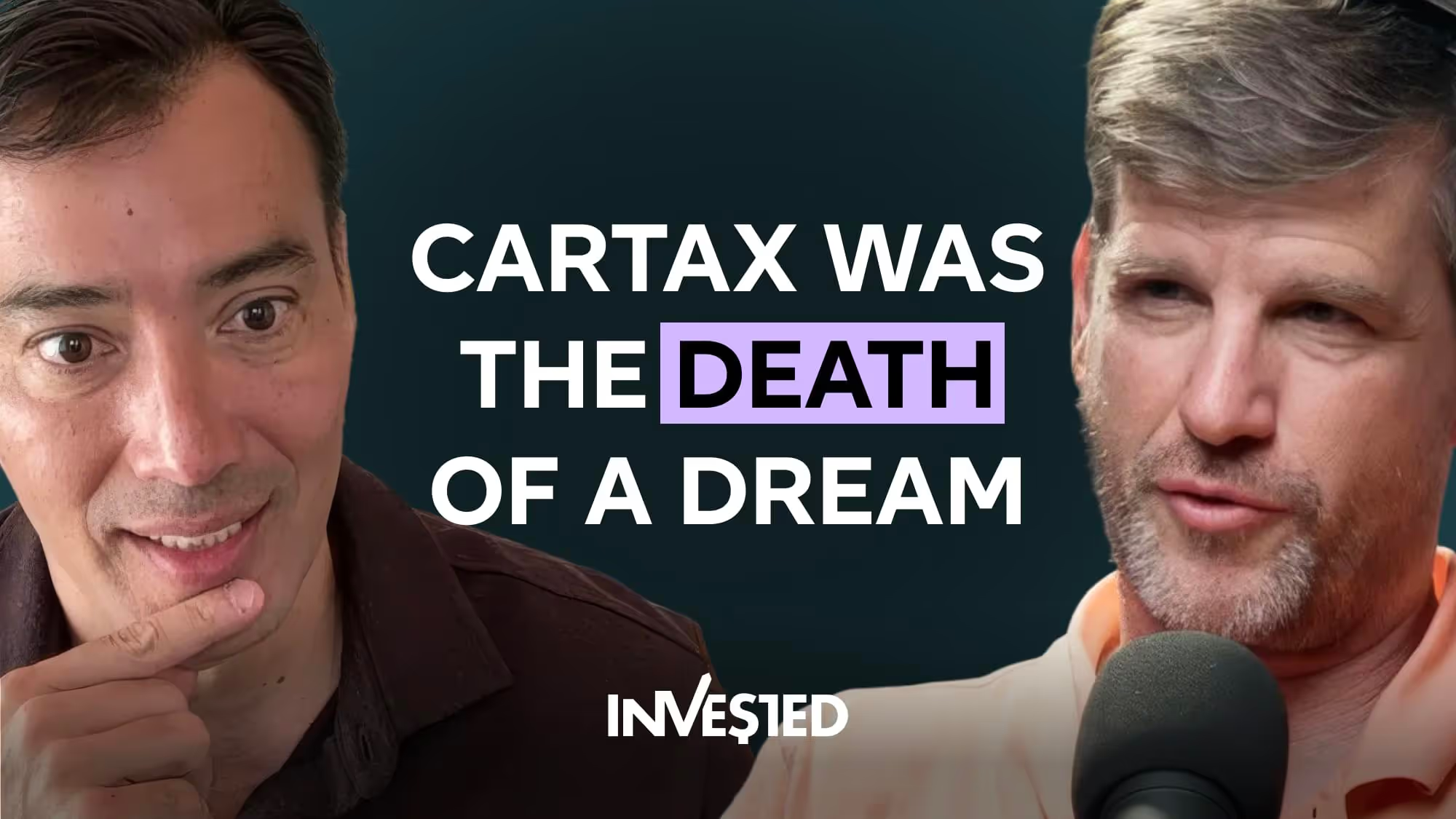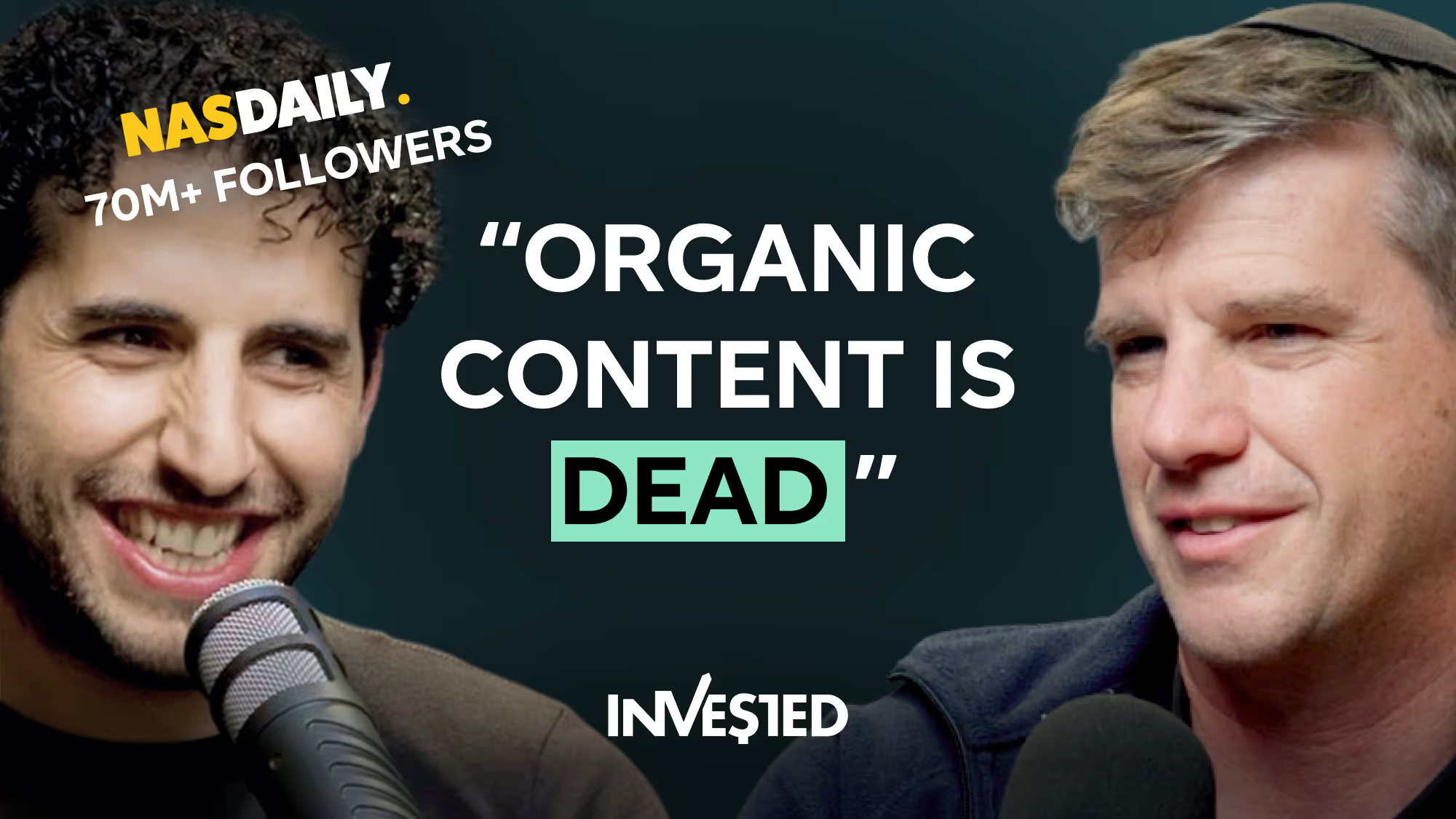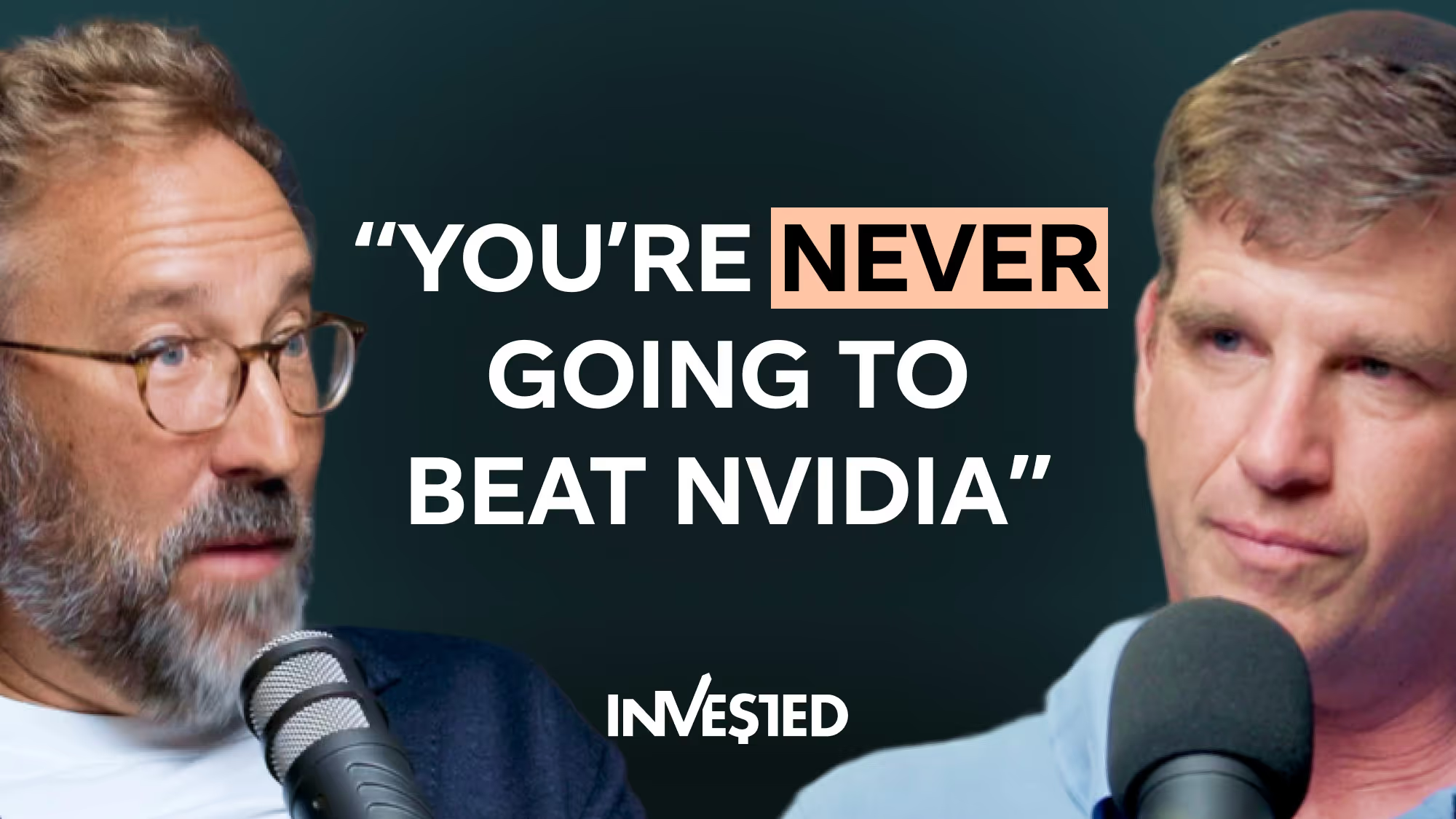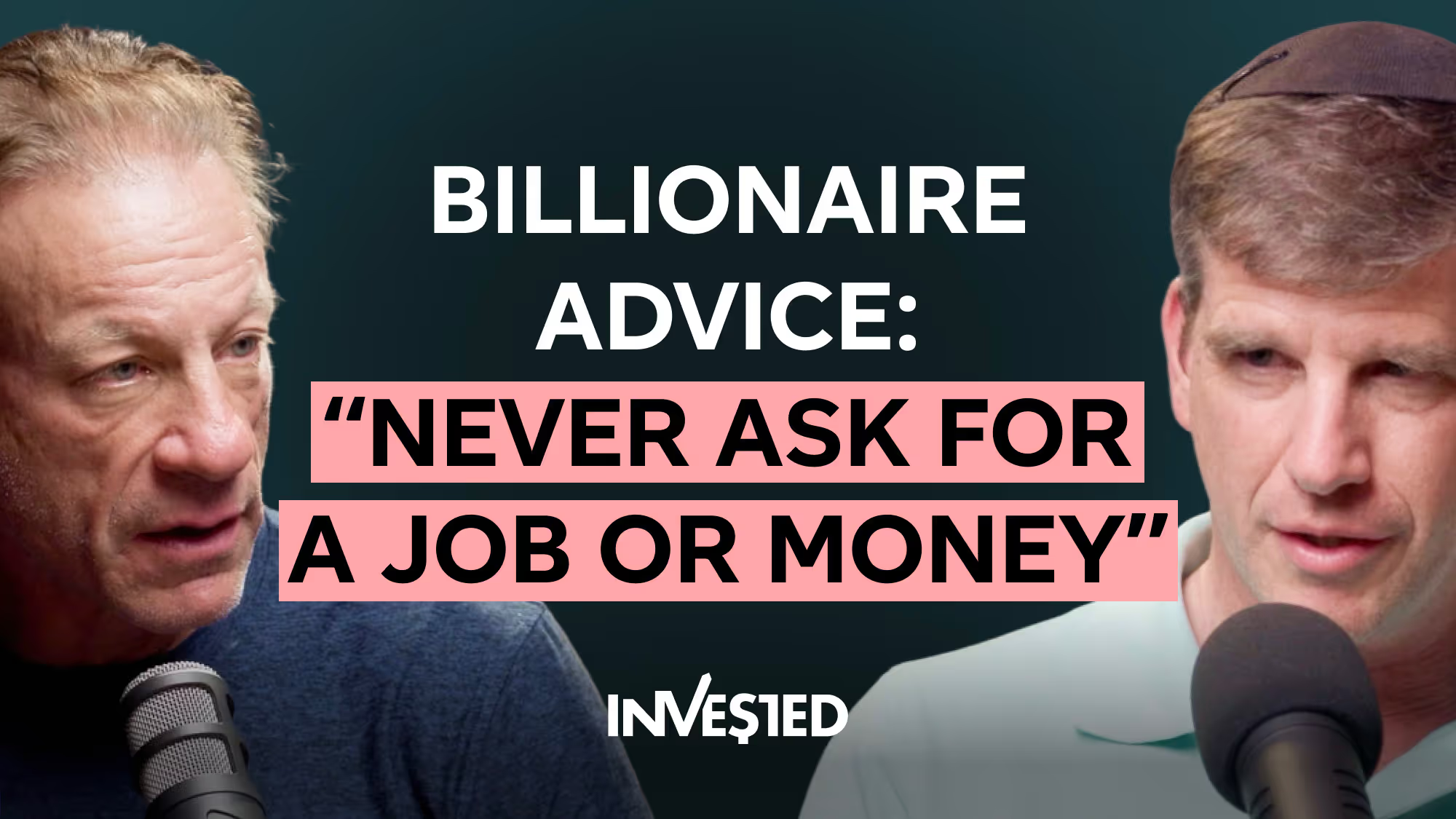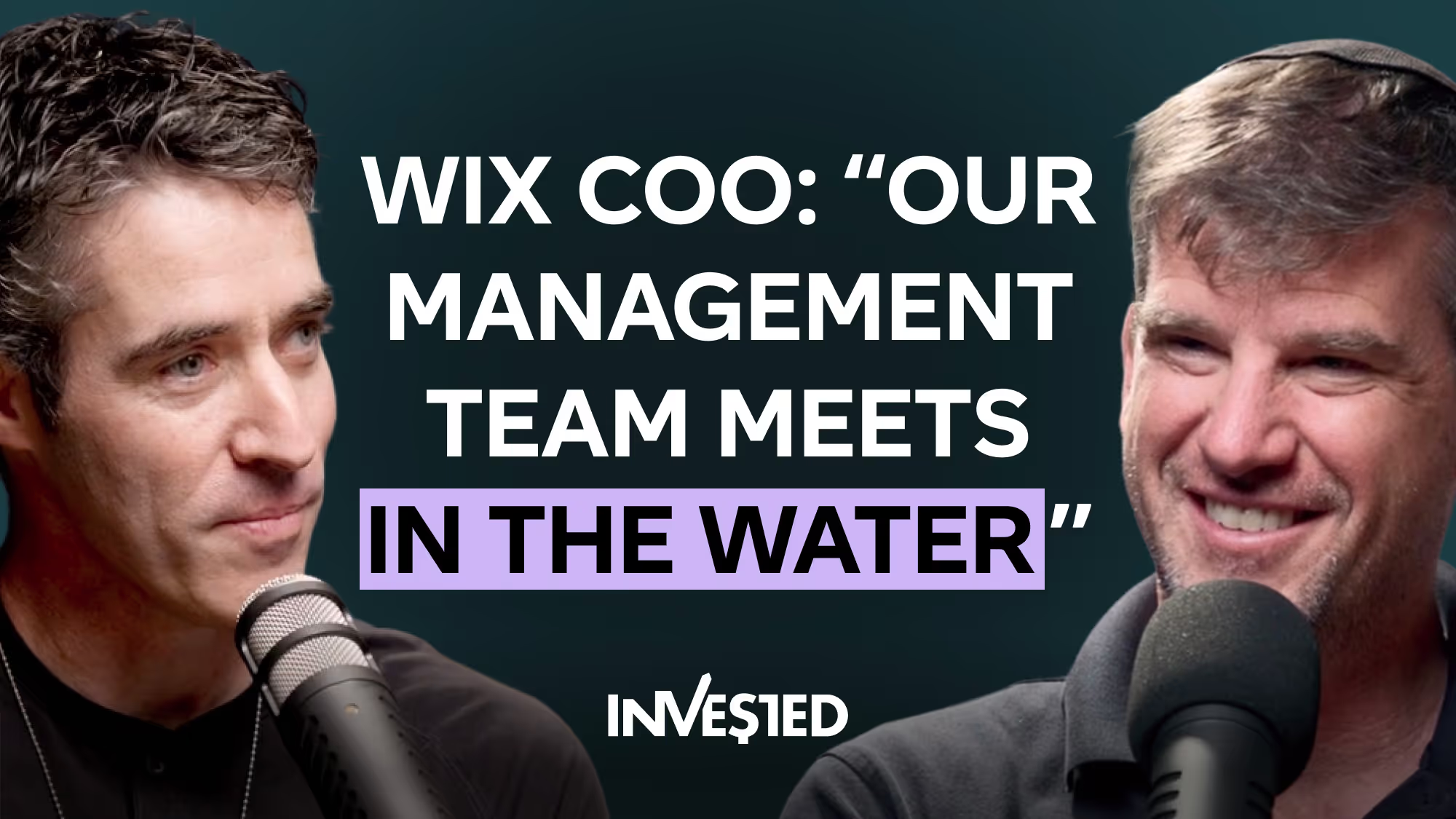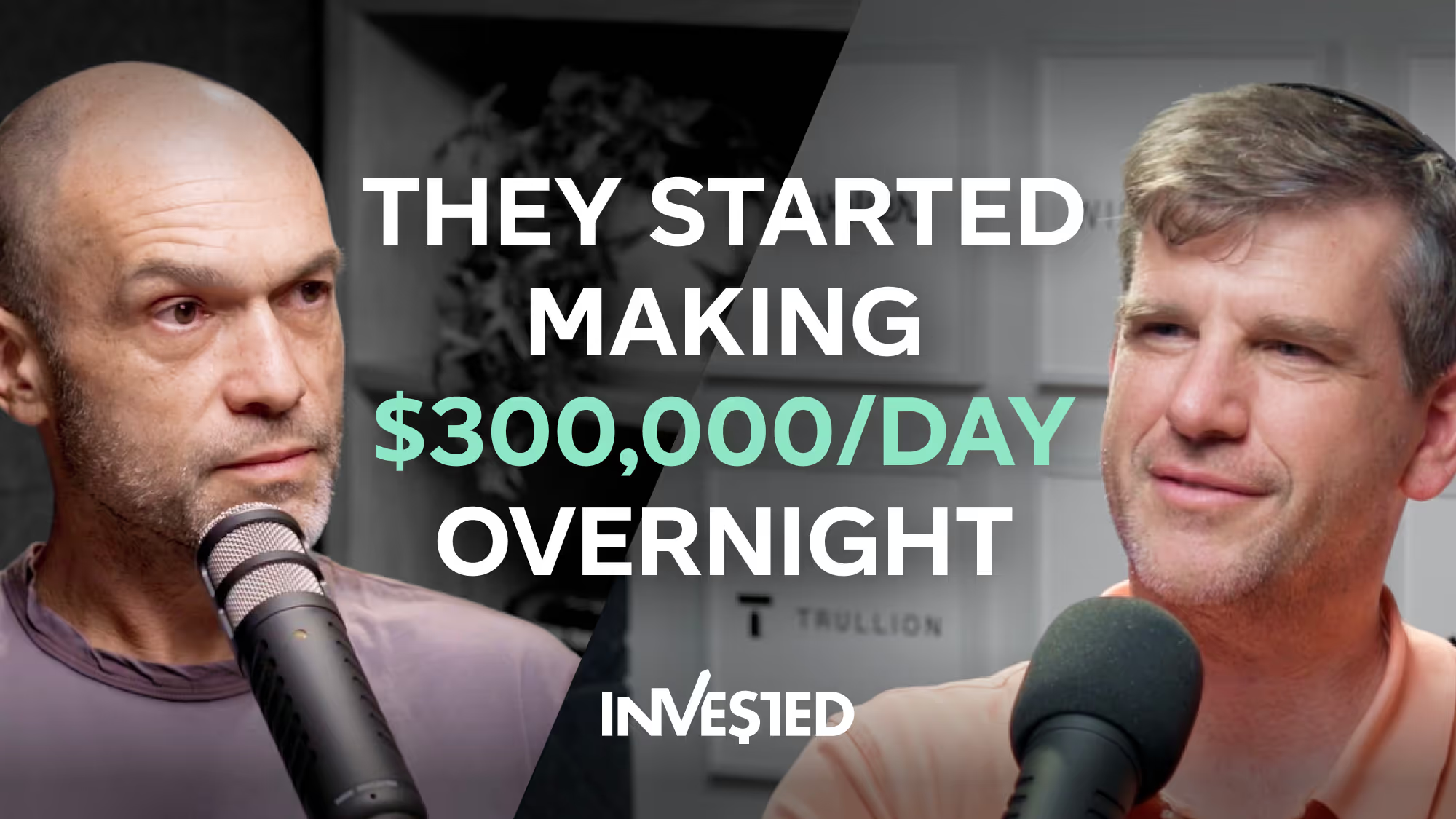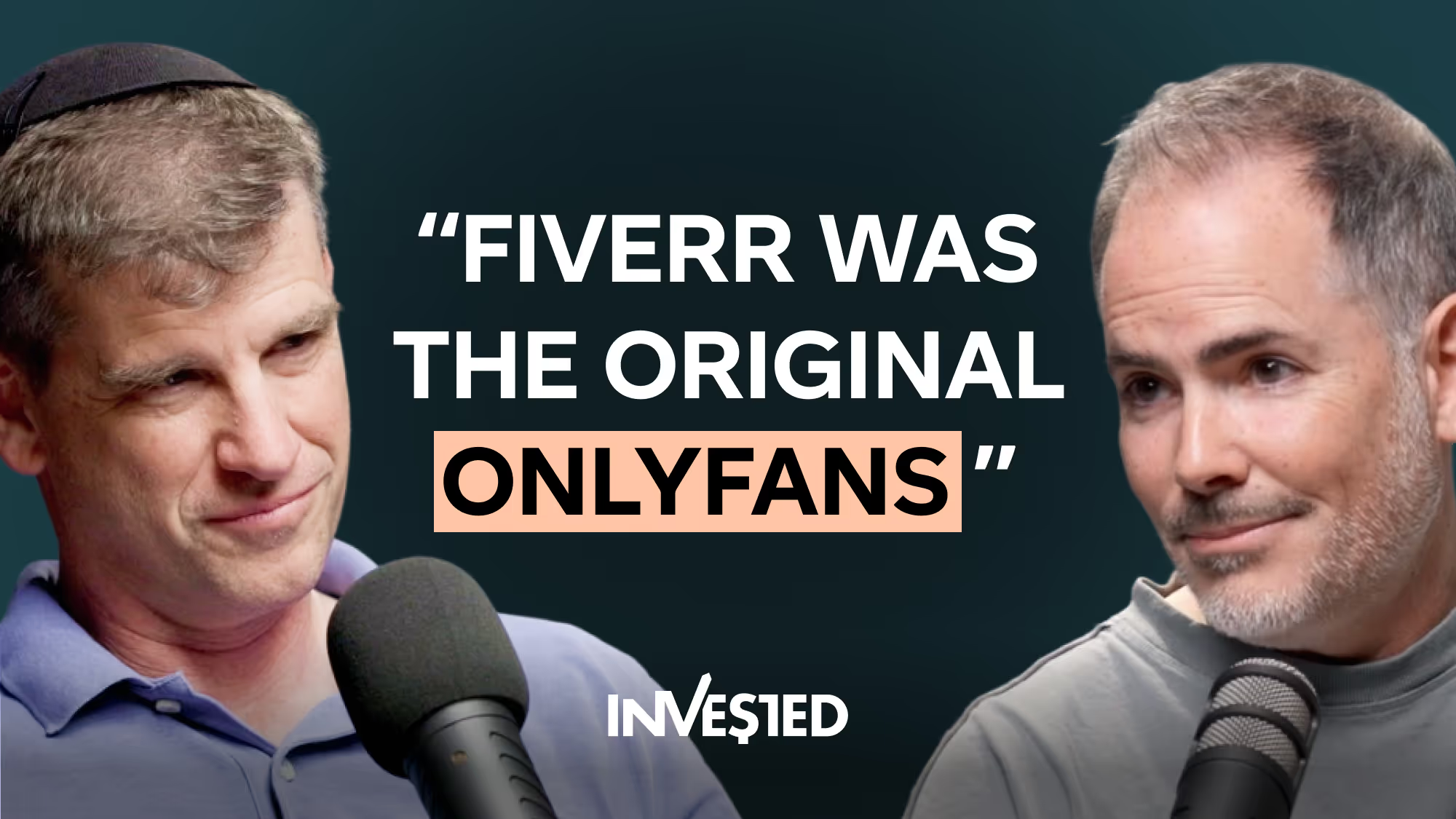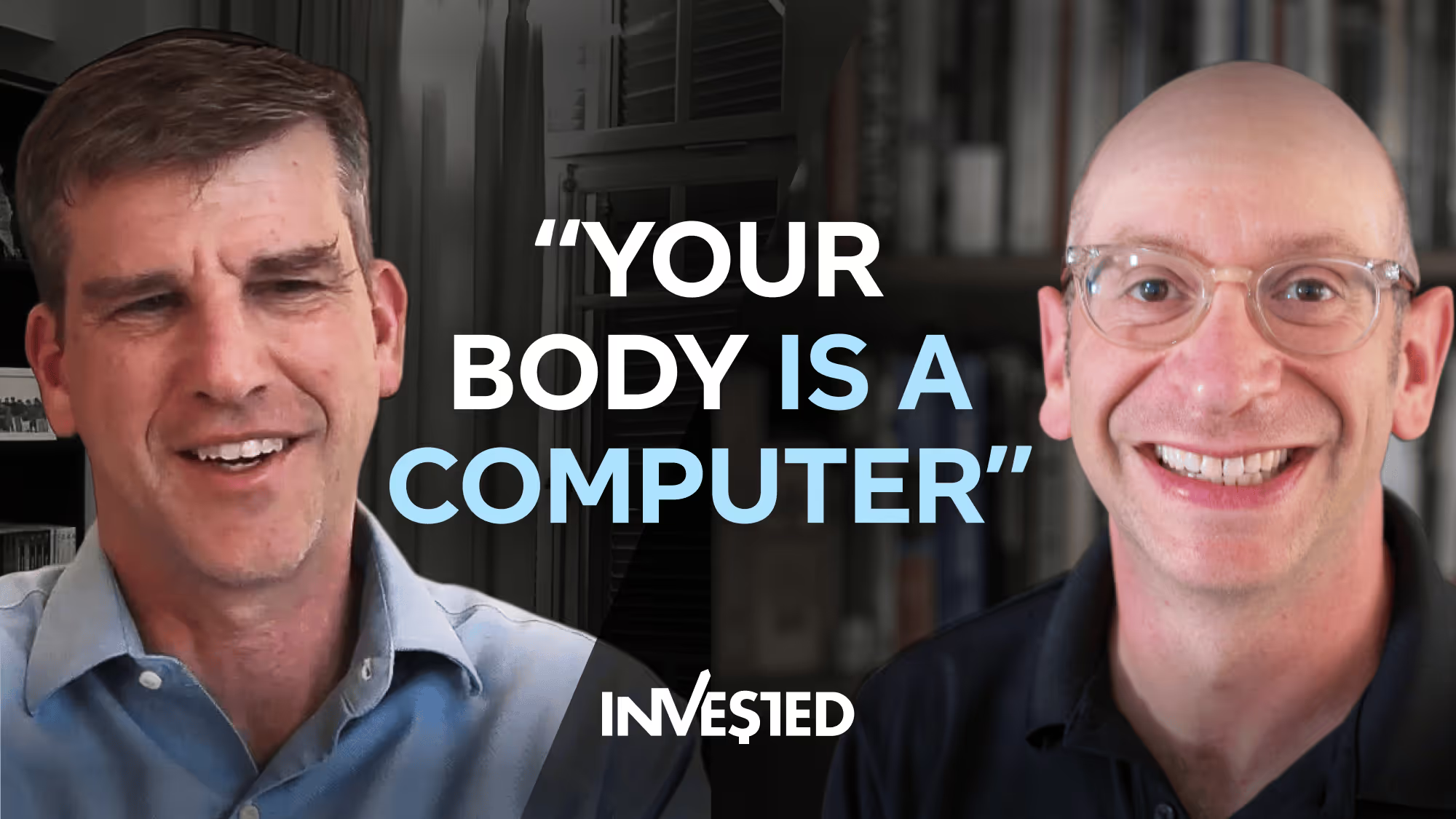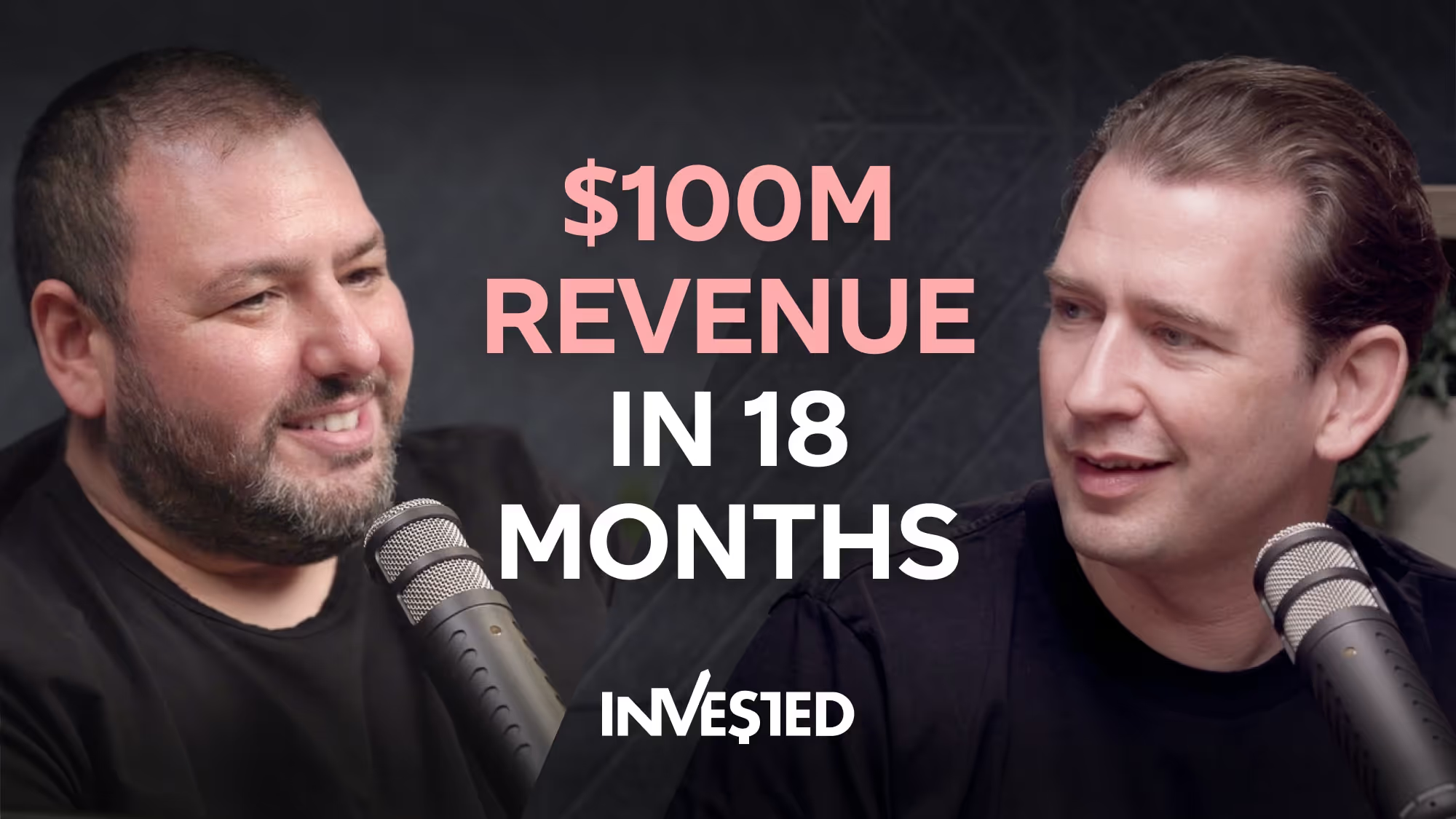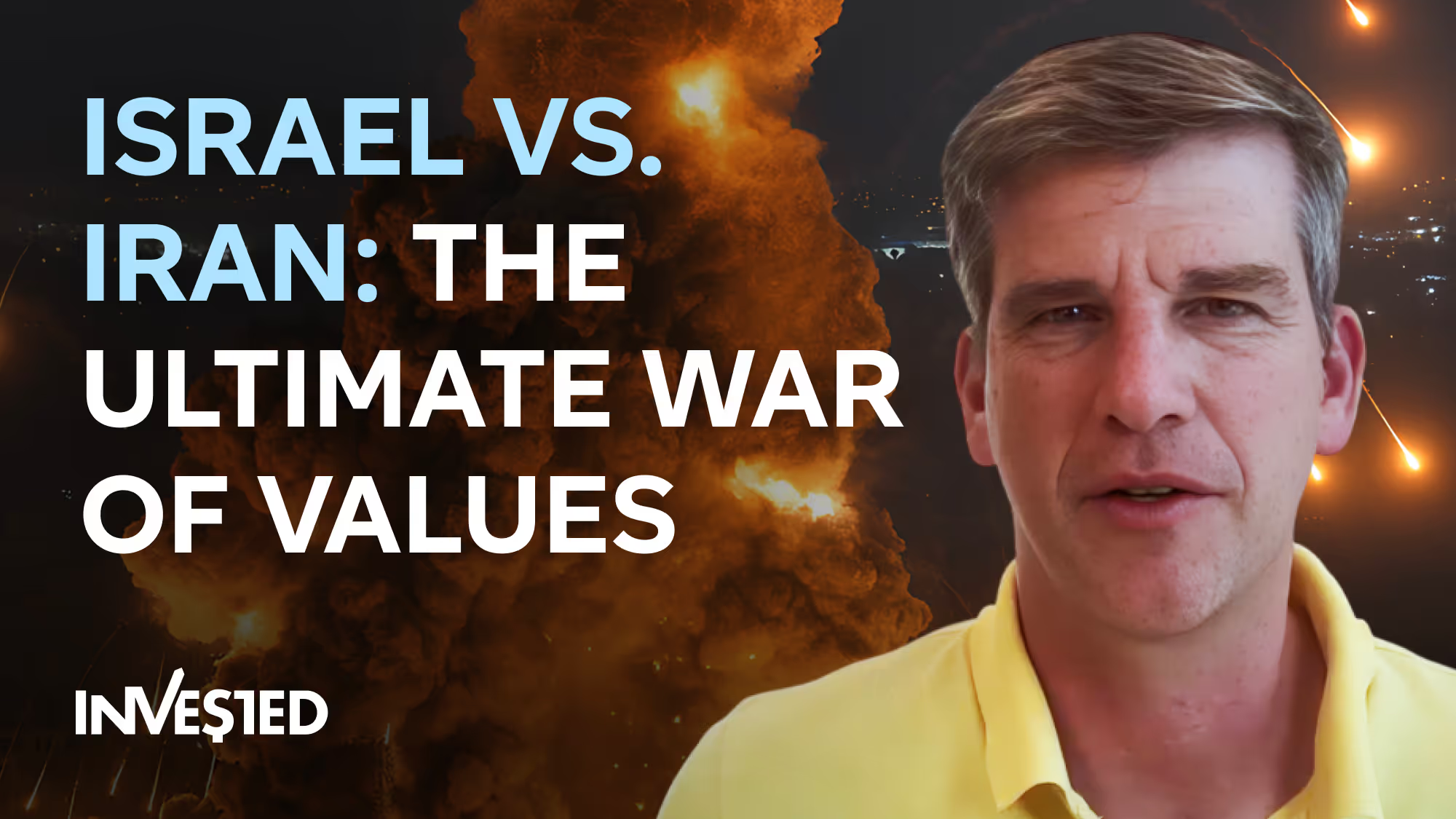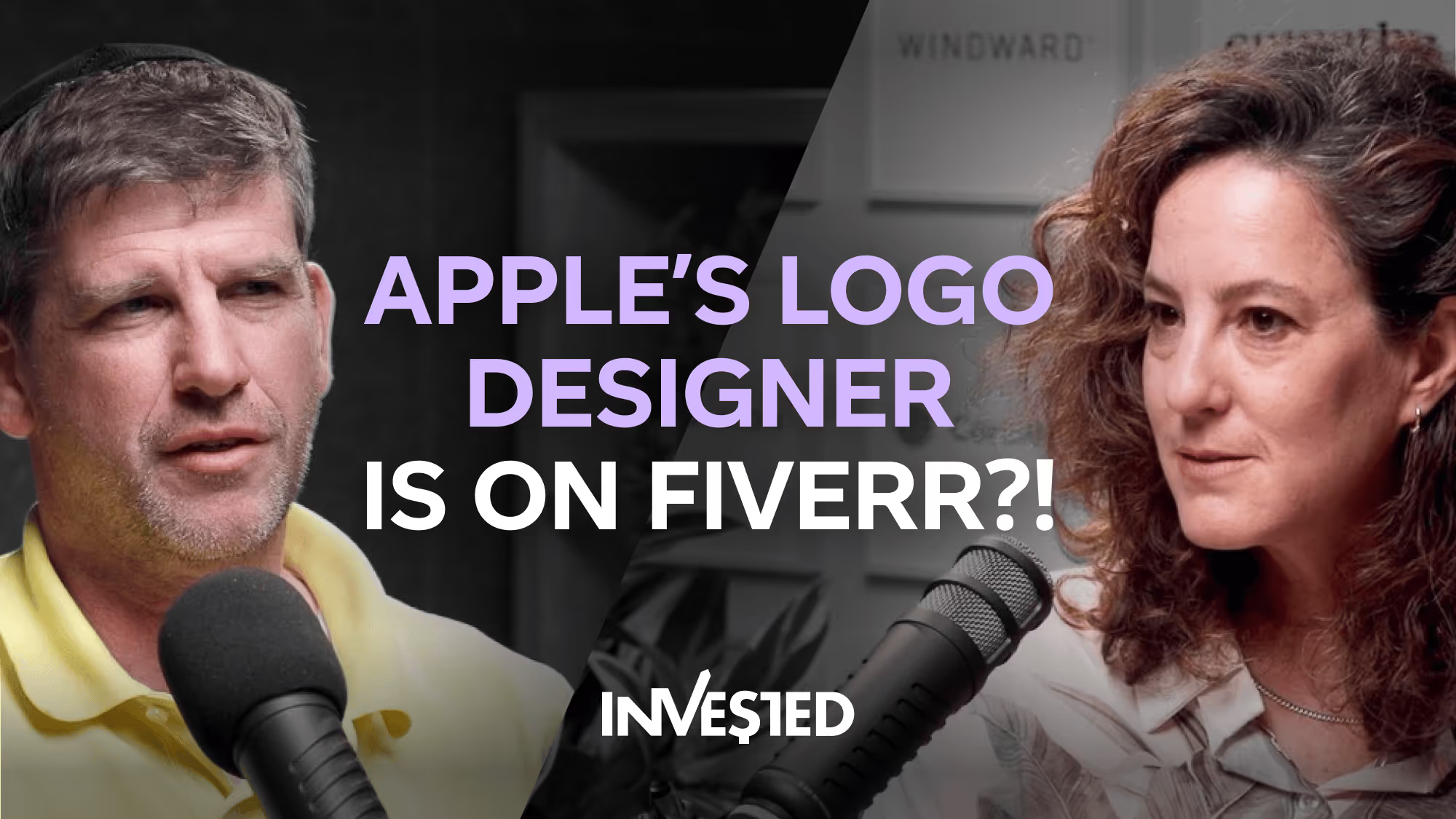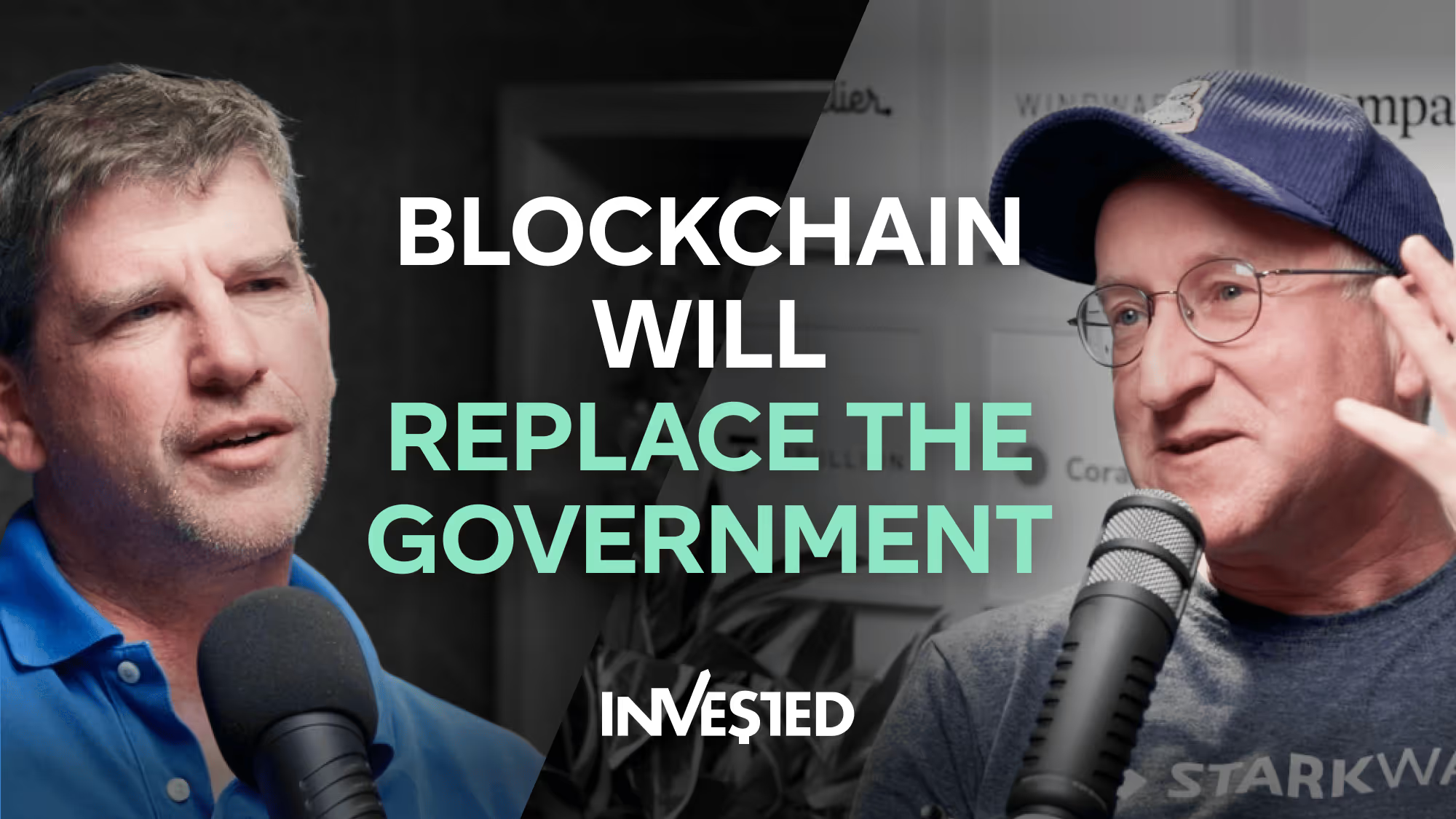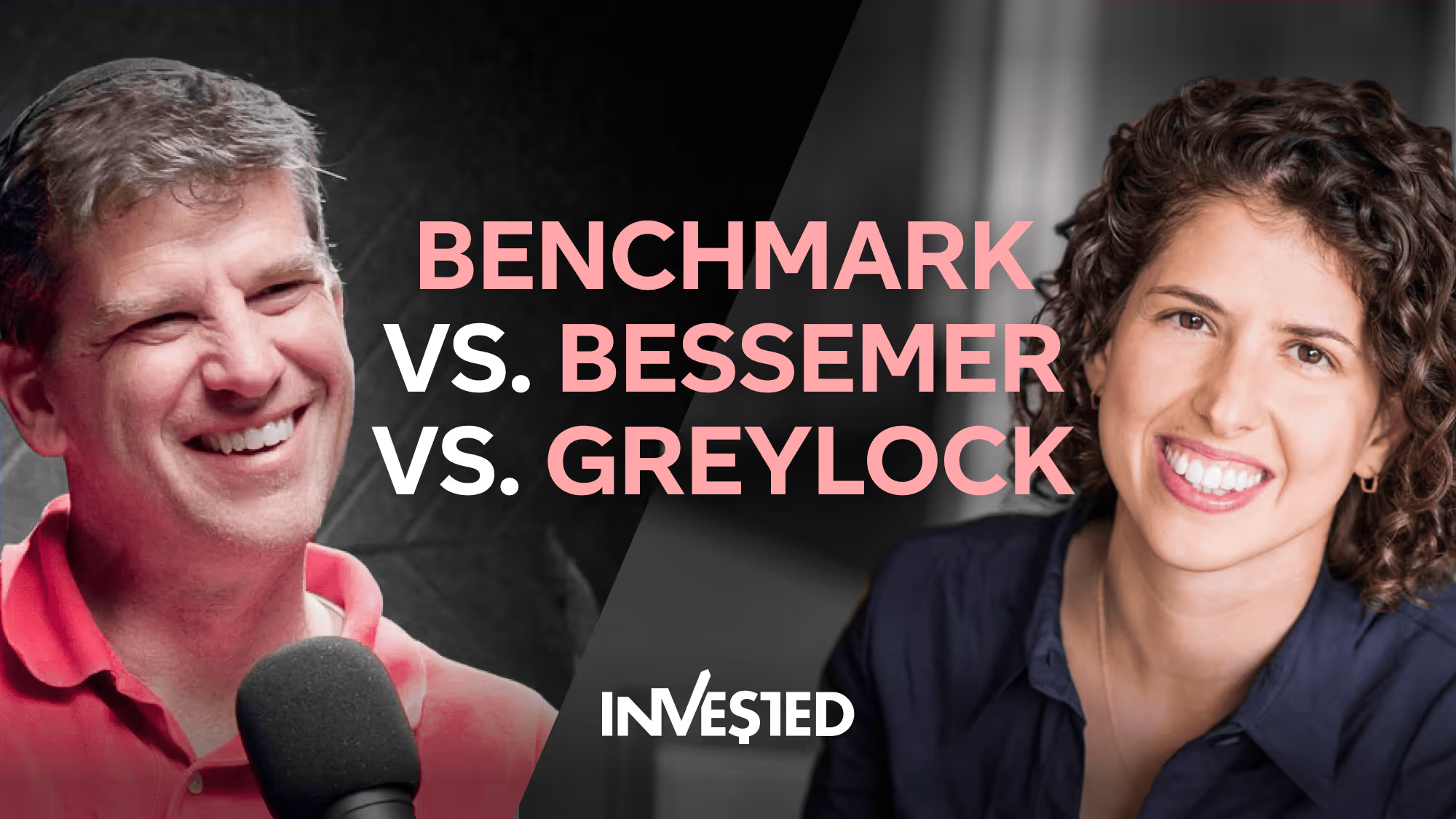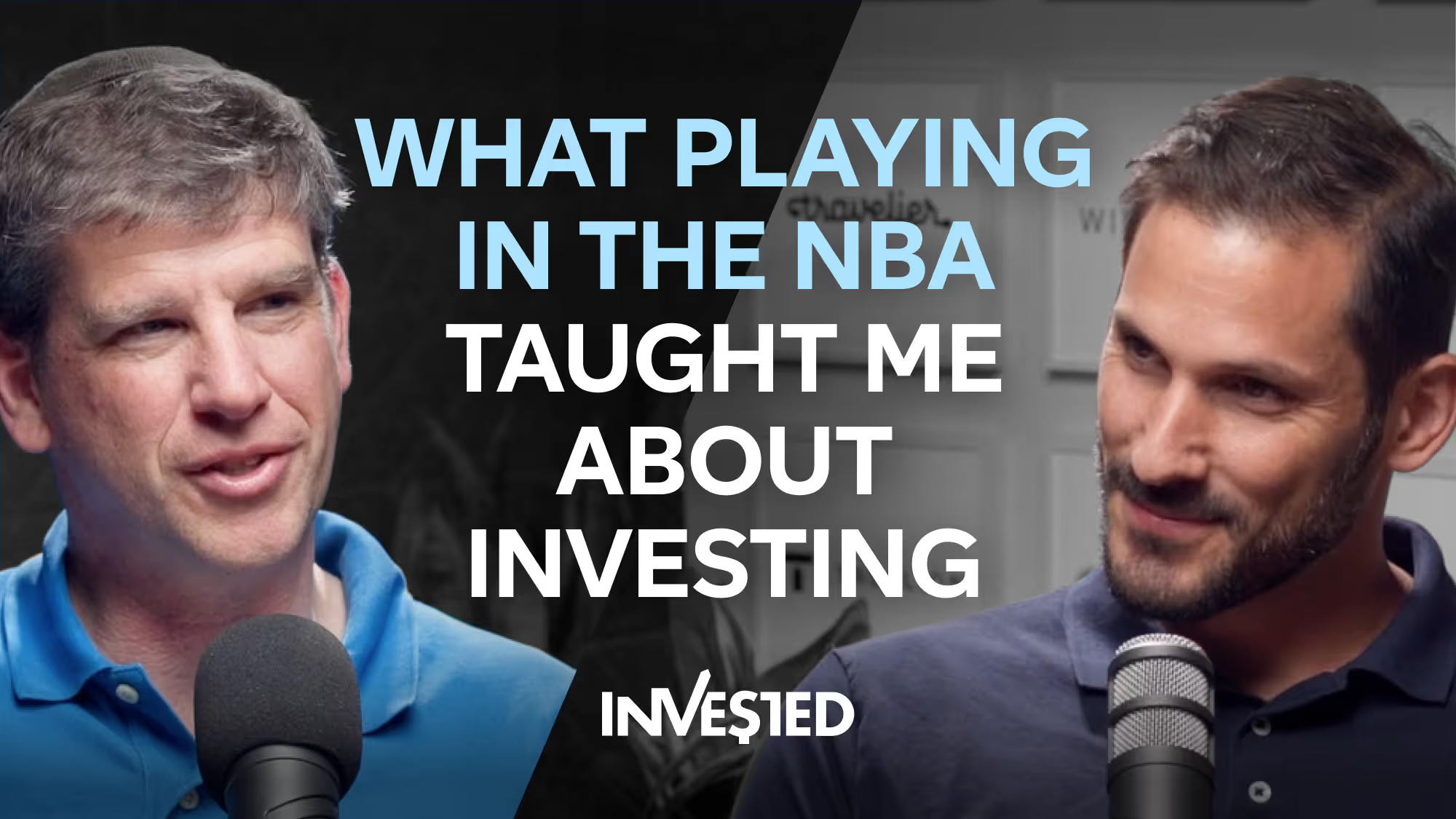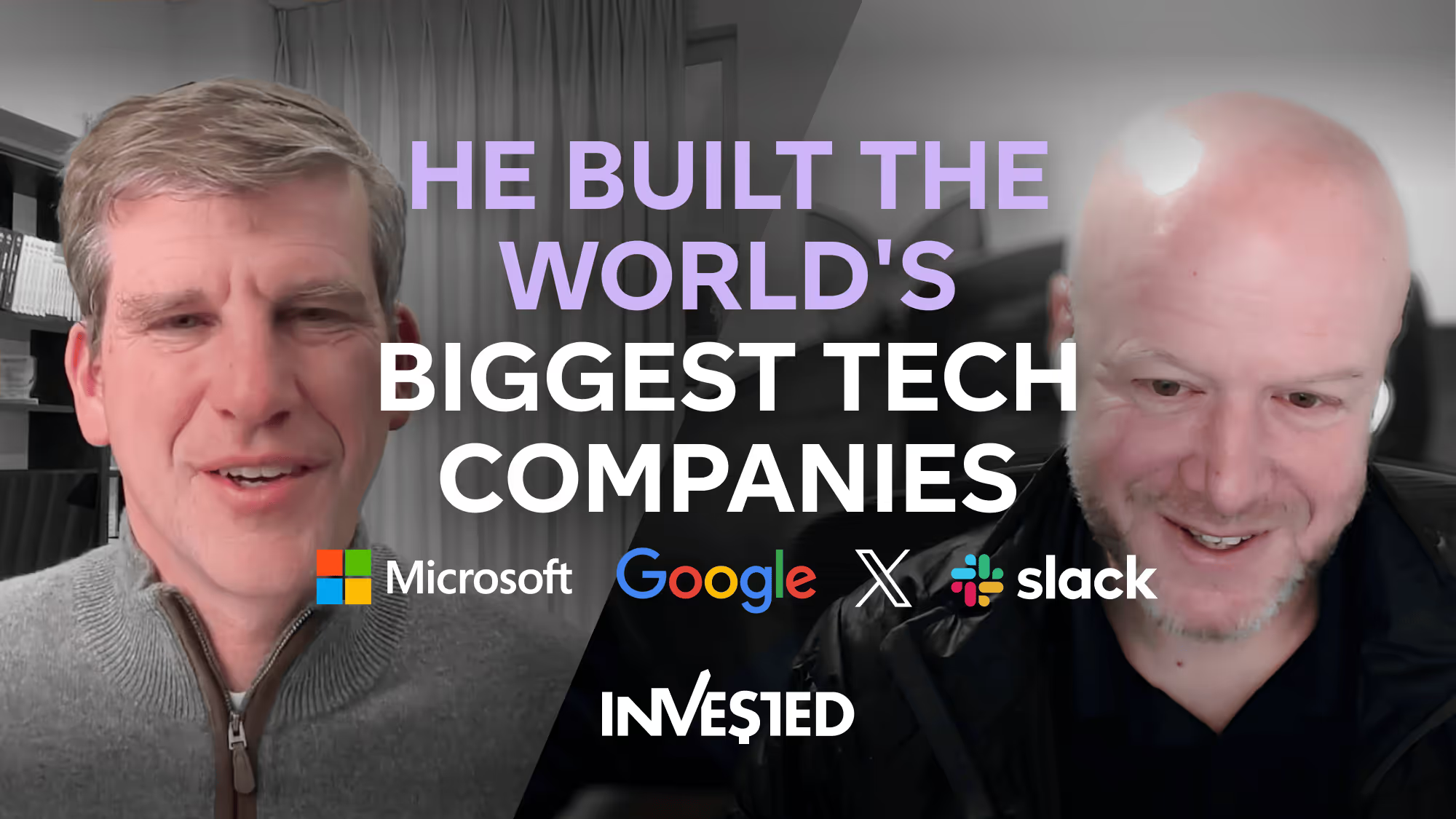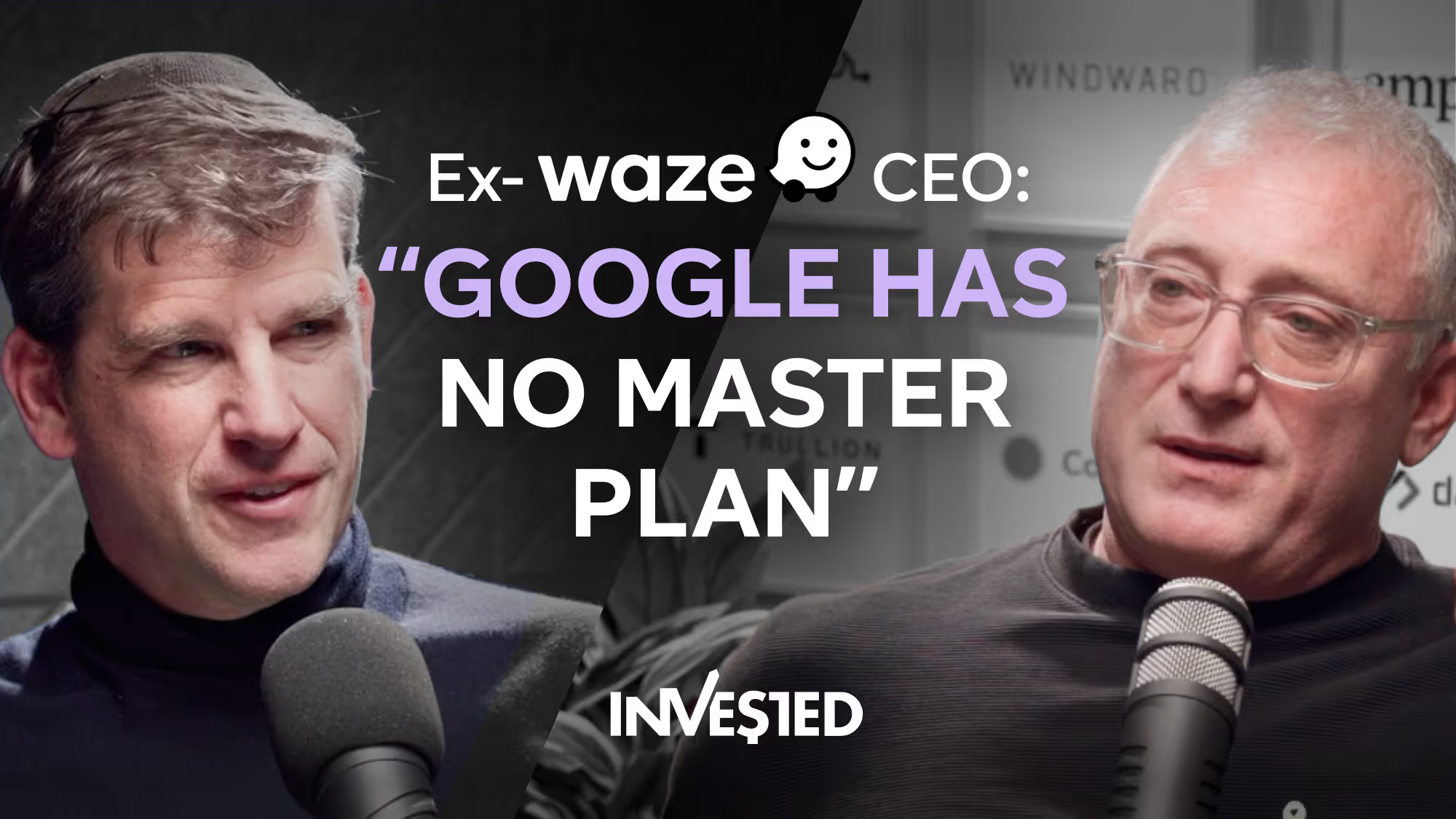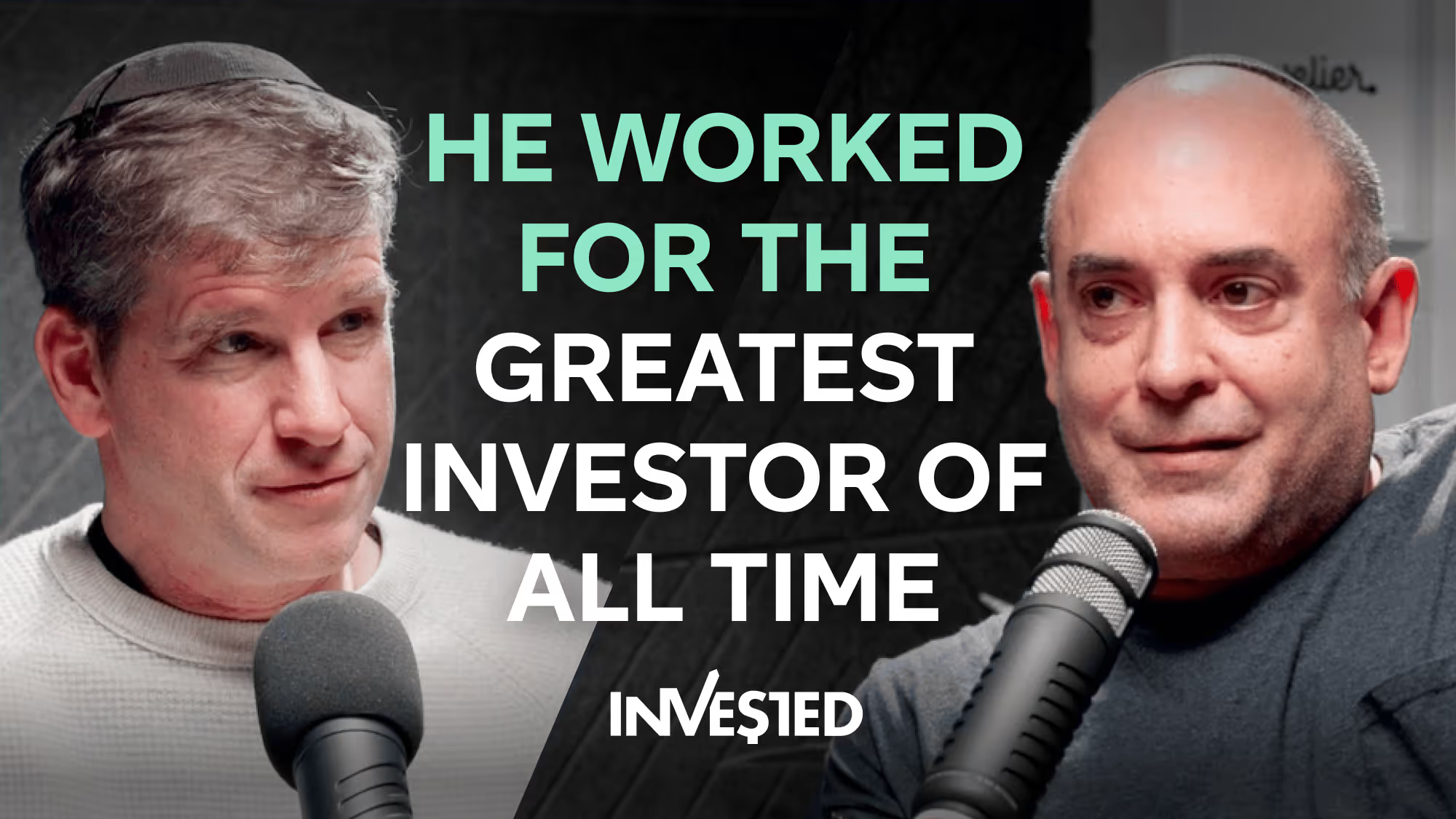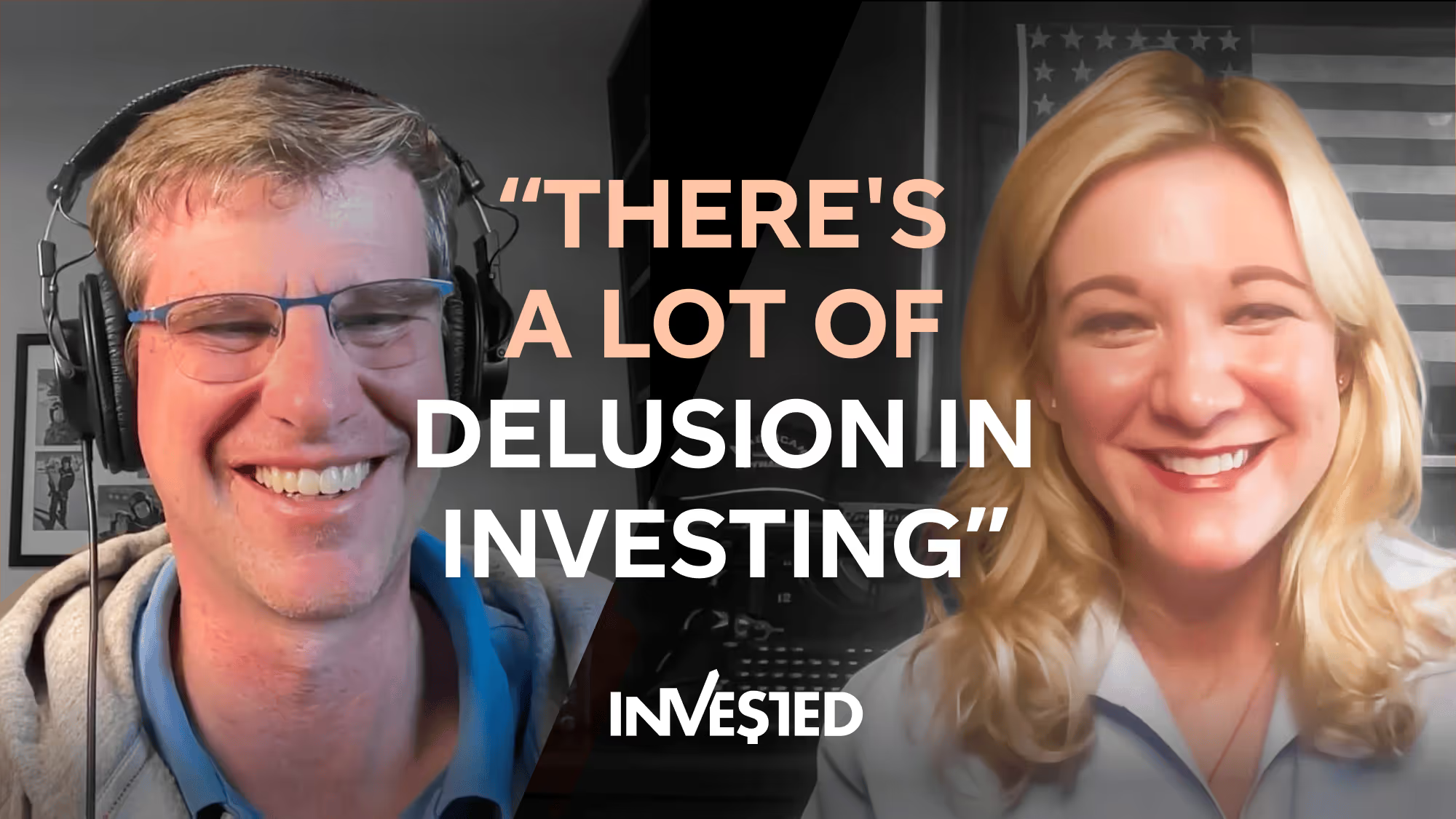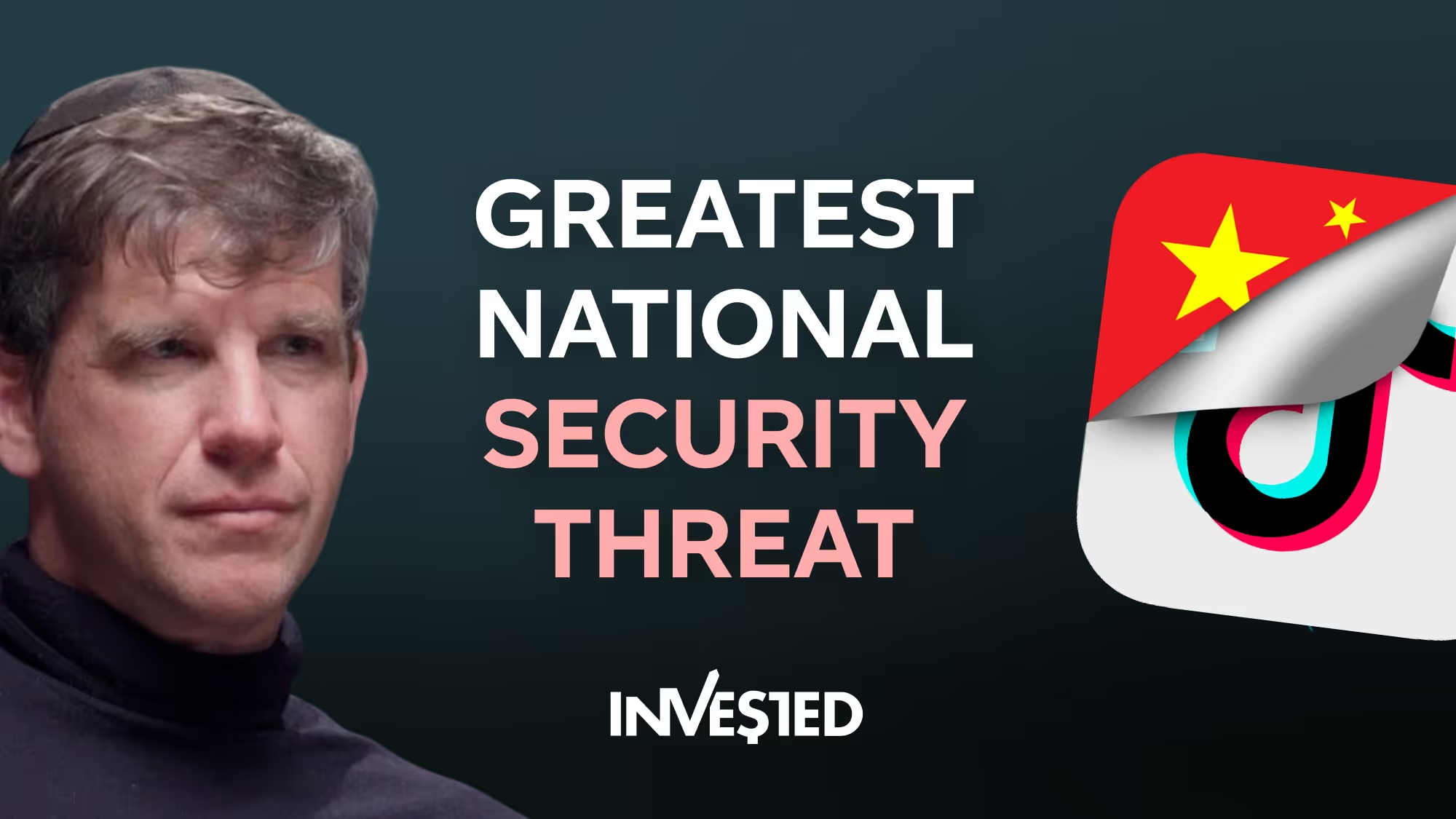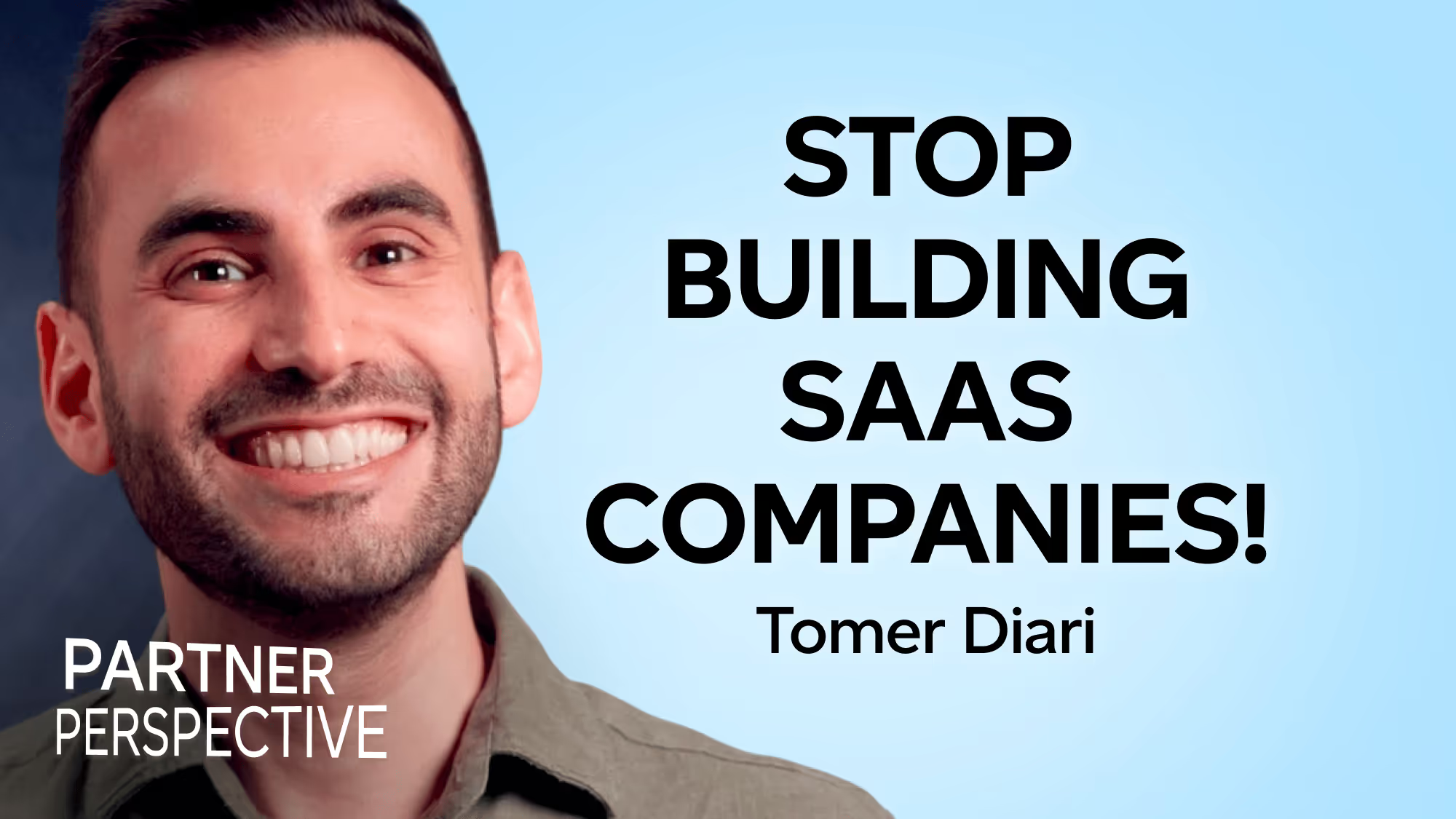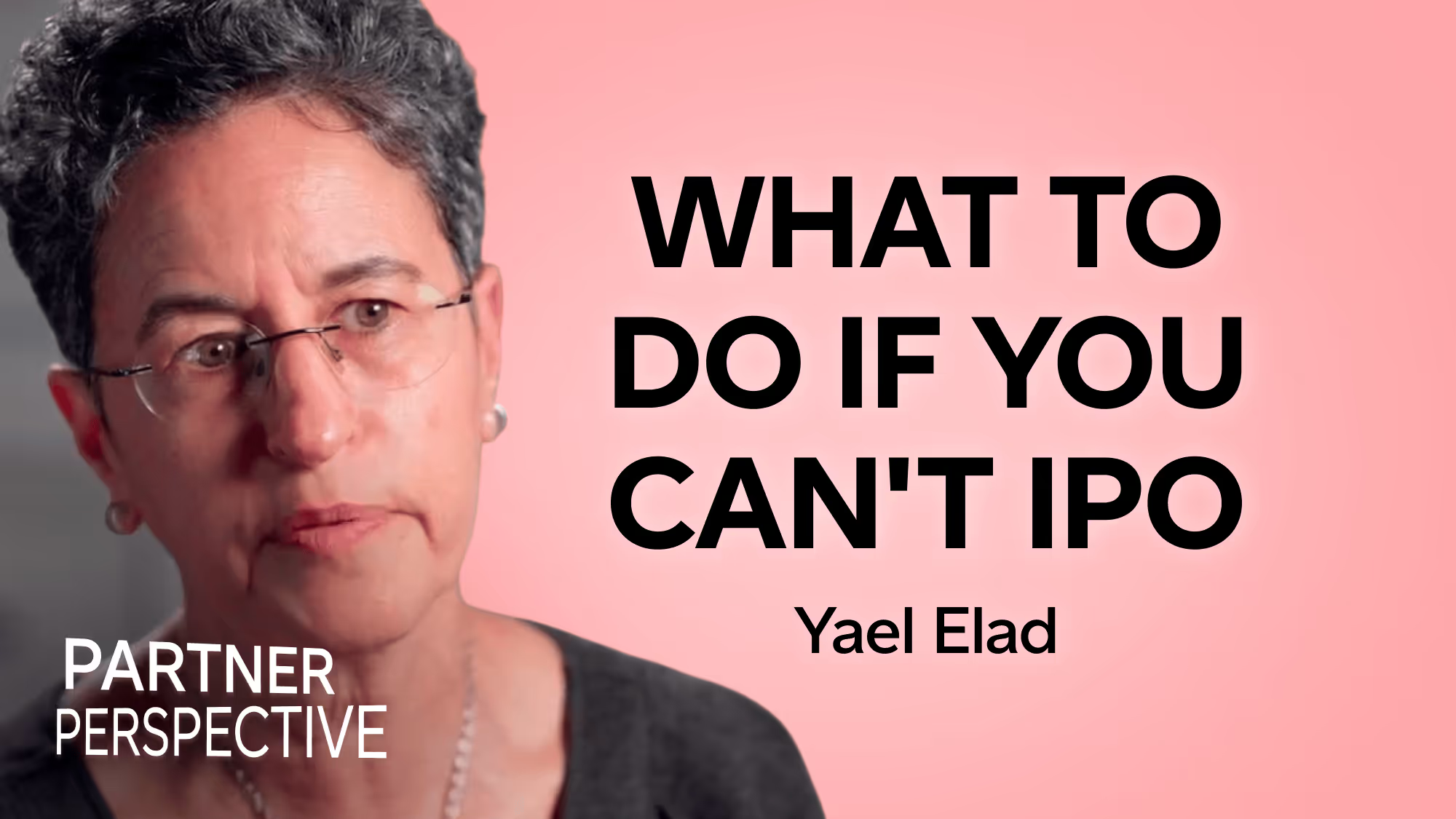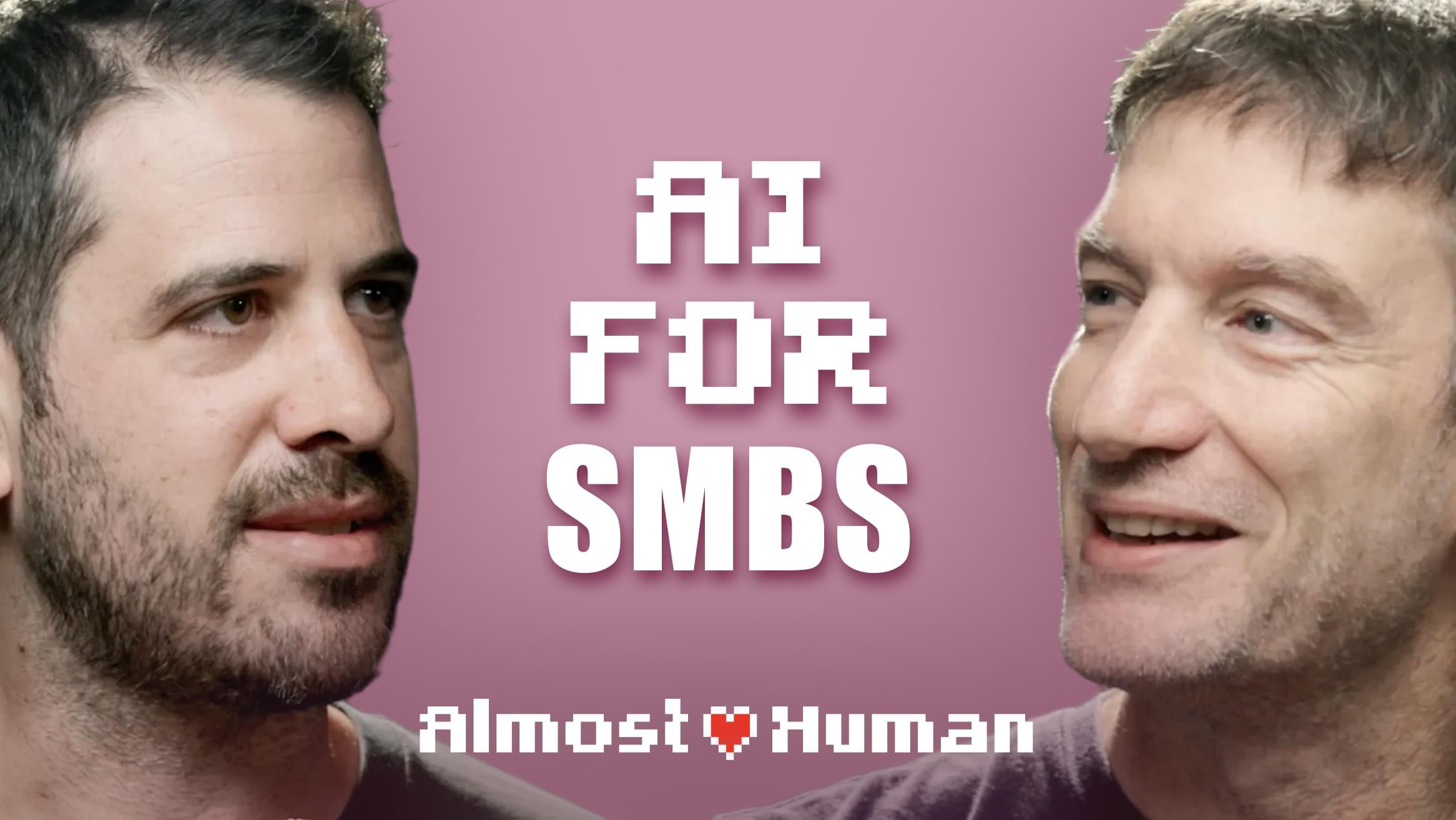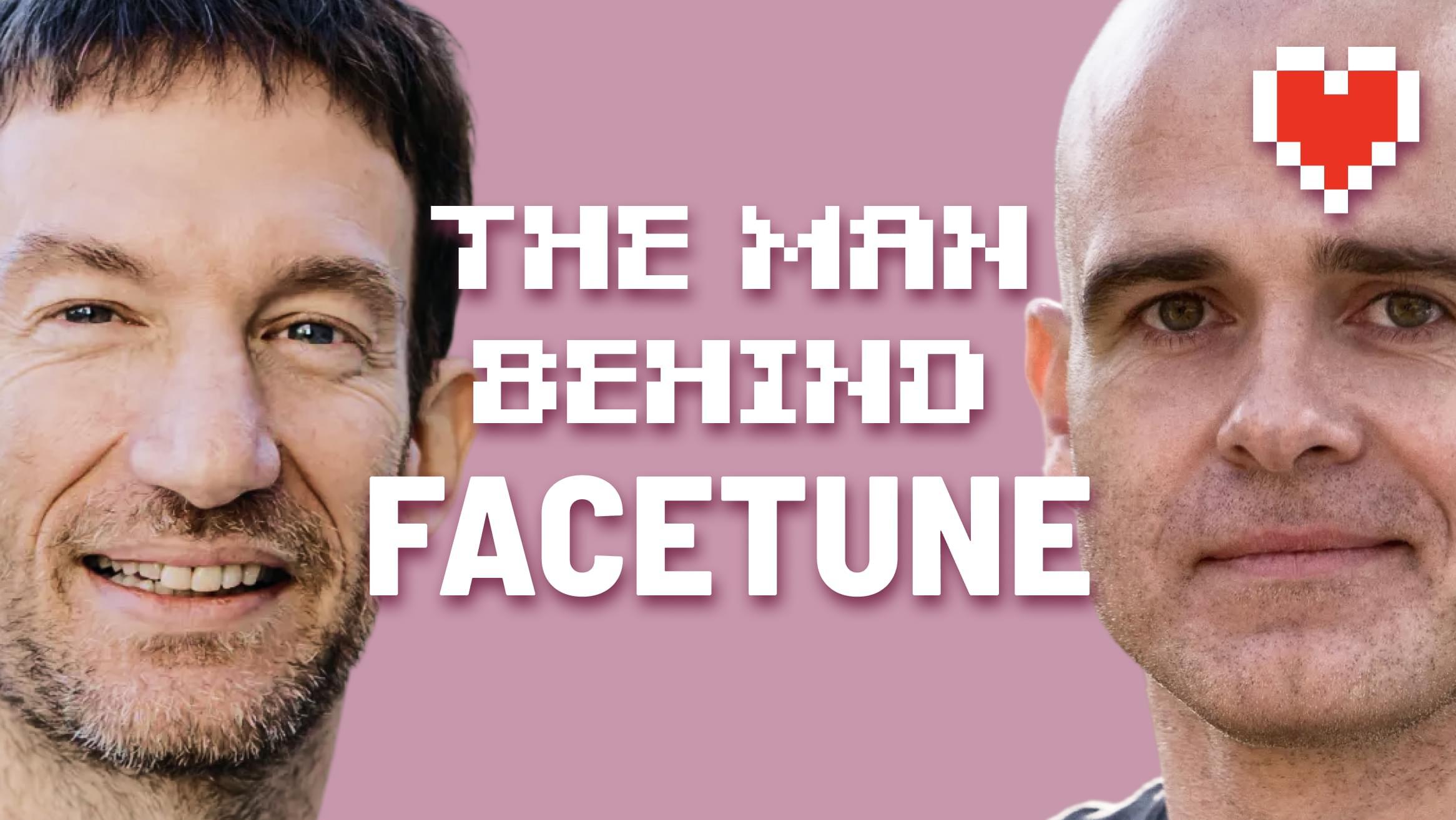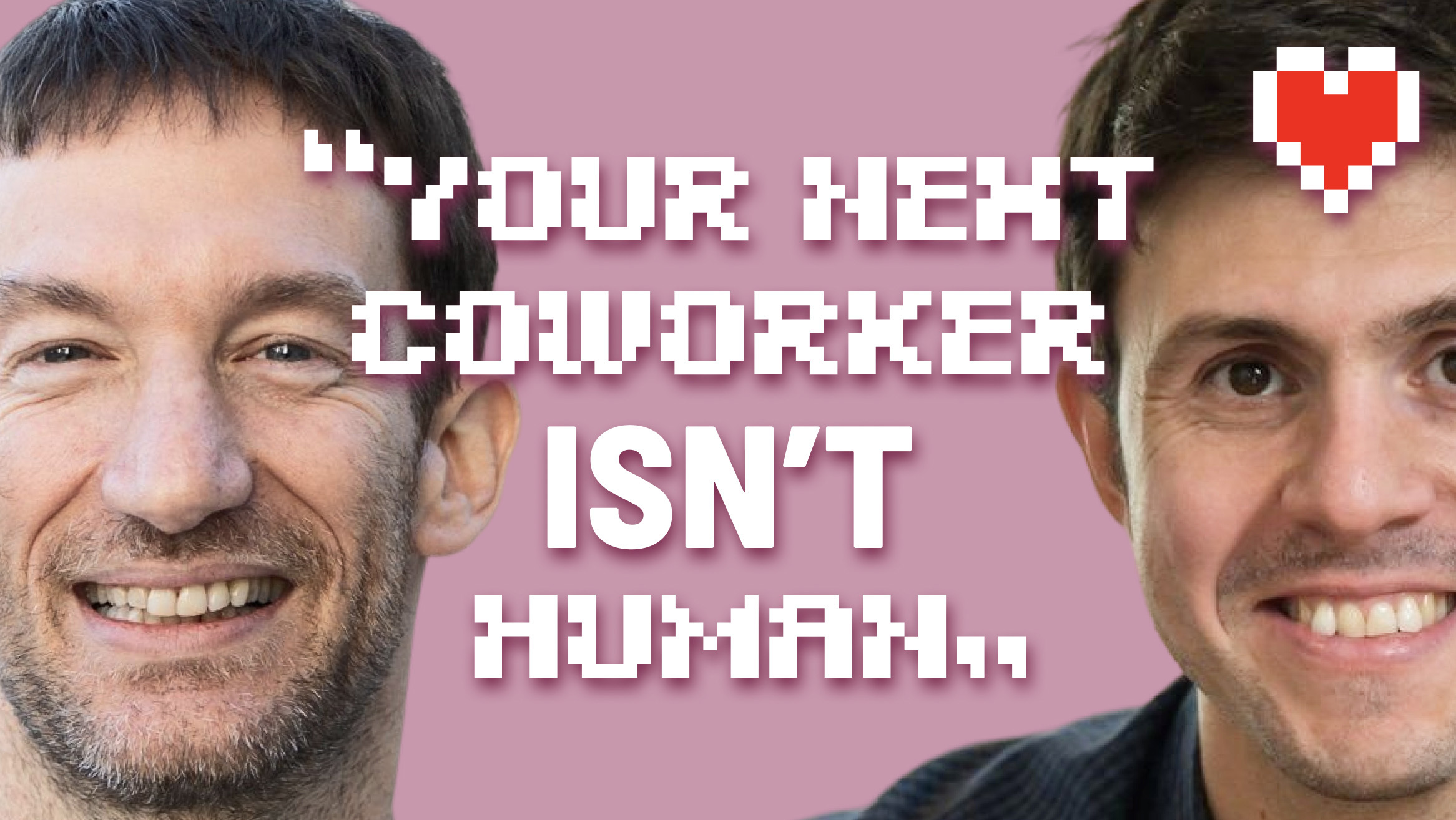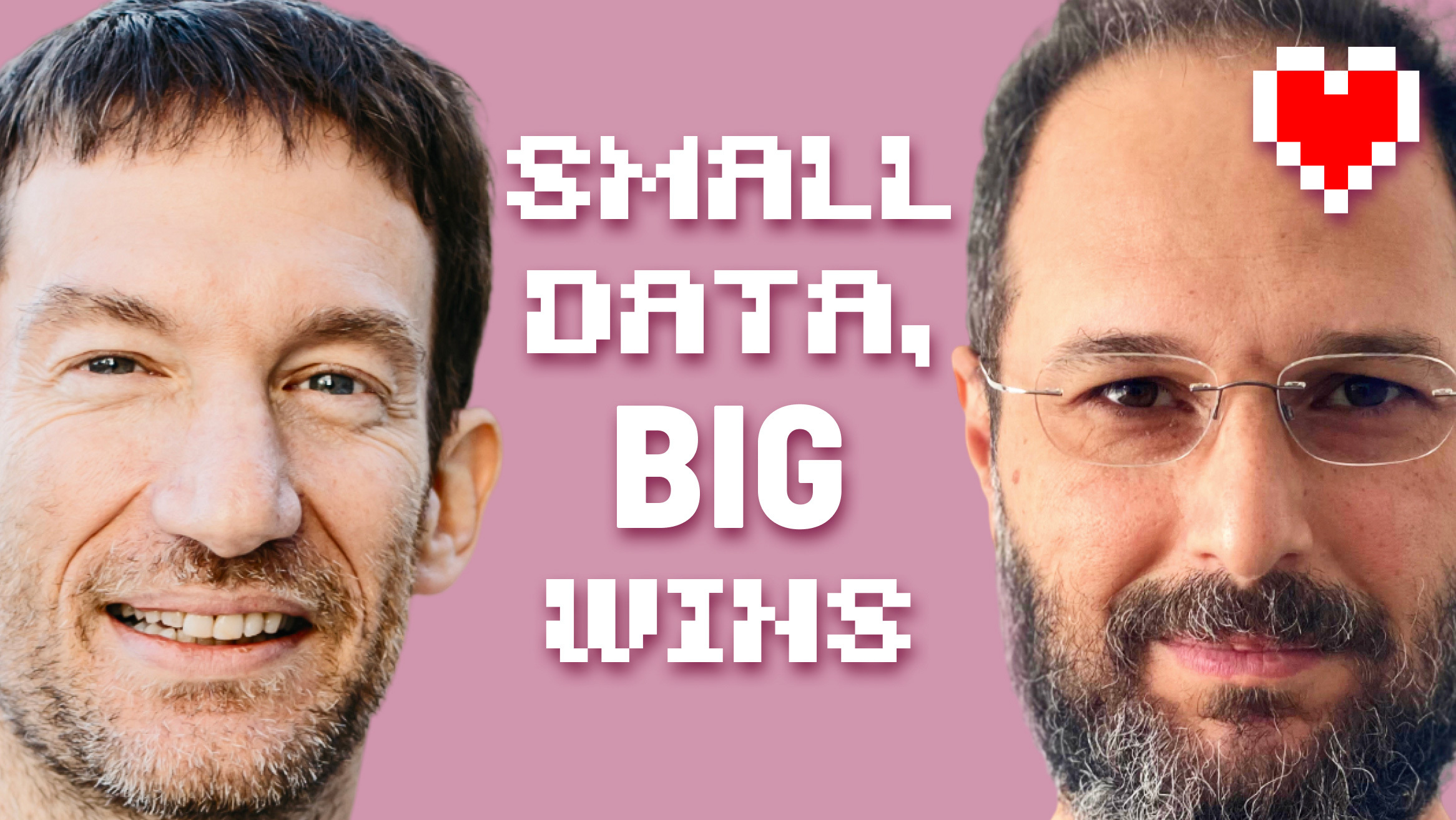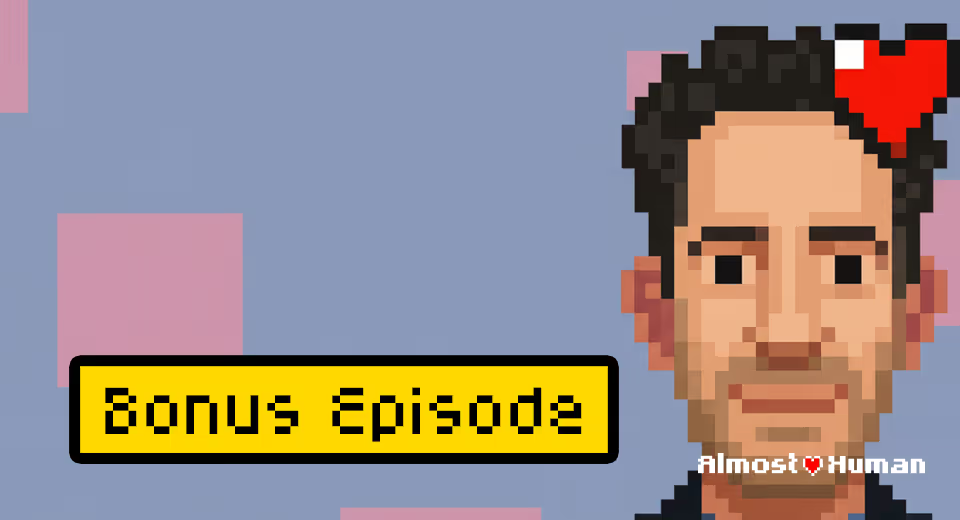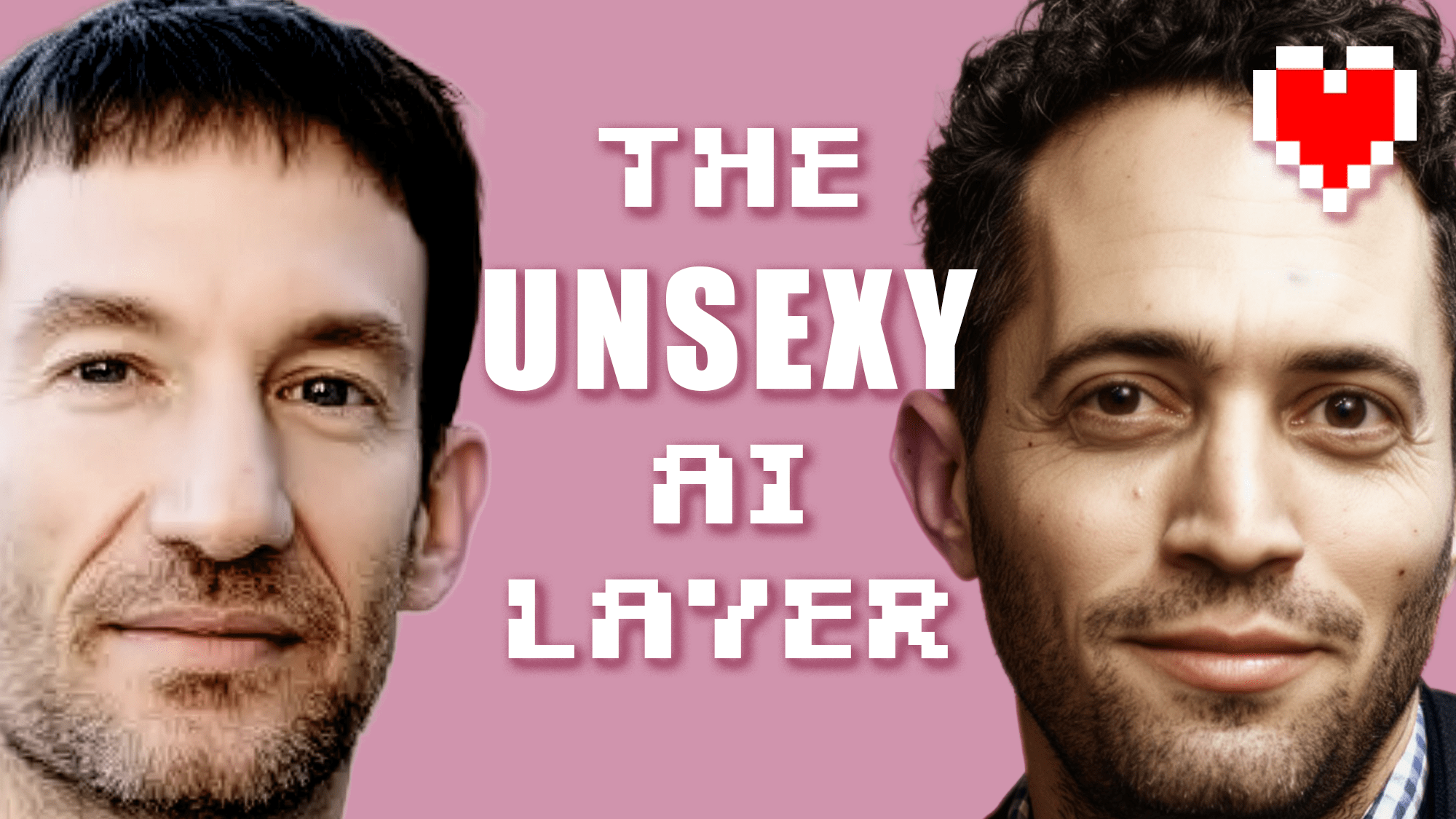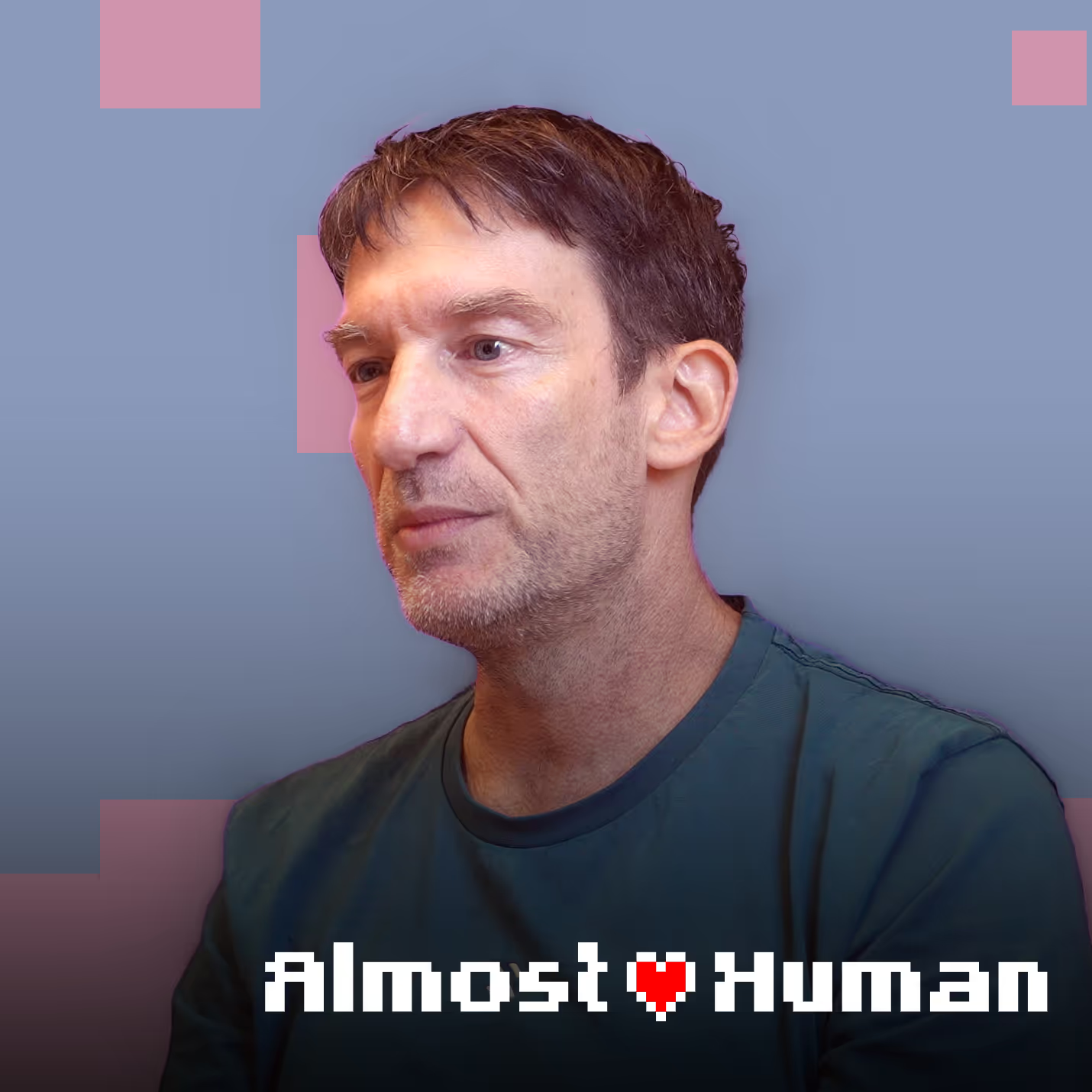Mati Gill



How can values create value? On this podcast, Michael Eisenberg talks with business leaders and venture capitalists to explore the values and purpose behind their businesses, the impact technology can have on humanity, and the humanity behind digitization.
Mati Gill



How can values create value? On this podcast, Michael Eisenberg talks with business leaders and venture capitalists to explore the values and purpose behind their businesses, the impact technology can have on humanity, and the humanity behind digitization.
Mati Gill
Mati Gill
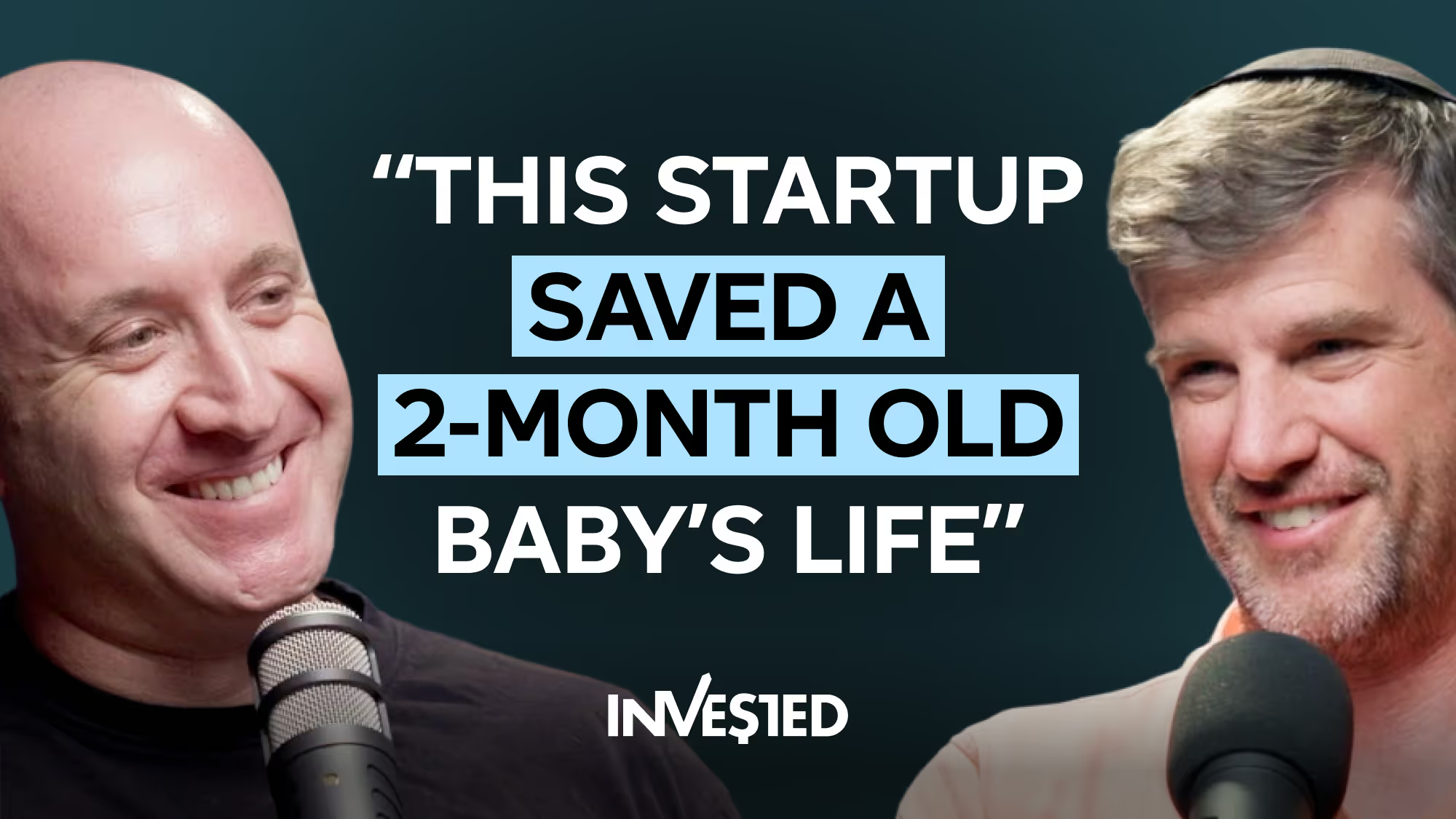
Mati Gill
Mati Gill
- 01:13 Early Life in Ohio and Moving to Israel
- 04:55 Military Service and Law School: Path to Public Service
- 06:43 Teva’s Origins and Growth into a Global Leader
- 11:24 Mergers, Acquisitions, and Teva’s Challenges
- 13:59 Leaving Teva and Founding AION Labs
- 14:12 What AION Labs is and Why the Name Matters
- 18:10 Merck, Teva, AWS, and VC Partners Joining AION
- 20:22 DenovAI and Antibody Discovery
- 23:08 Accelerating Drug Development with AI and Pharma Partners
- 24:43 AI in Gene Editing and the Baby KJ Case
- 27:39 Why Biology Expertise Must Balance AI
- 34:01 From Doubt to Investment: DenovAI’s Validation
- 36:59 Government Support and the Israel Innovation Authority
- 39:33 Which Startup Could Be AION’s First Mega Hit?
- 40:17 Core Values: Israel, Family, and Mission
- 44:21 Why Most Drugs Fail and How AI Can Help
- 45:59 Enhancement vs. Health: The Ethics of Gene Editing
- 48:18 Theranos, Transparency, and Governance Lessons
- 51:25 The One Disease to Cure: Alzheimer’s
- 55:41 What Teva Taught Mati About Scale and Missed Opportunities
- 57:01 Being Shot Near Gaza and Lessons from Survival
- 01:02:05 Public Service: Always on Loan to Israel
- 01:02:45 Will AI Cure Cancer?
On this episode of Invested, Michael hosts Mati Gill, CEO of AION Labs, Israel’s first global biotech venture studio. Backed by Pfizer, Merck, AstraZeneca, Teva, and AWS, AION Labs pioneers a new model for company creation: uniting pharma giants, tech leaders, and investors to collaboratively build AI-first startups in drug discovery and development. Instead of the typical biotech trajectory - where most startups fail - AION ensures founders start with the right problem, data, talent, guidance, and backing from day one. Mati brings a rare blend of experiences across pharma, government, and security. Before AION, he was a senior executive at Teva Pharmaceuticals, leading global public policy and advising the CEO during major restructuring. Earlier, he served as Chief of Staff at Israel’s Ministry of Public Security, and as an IDF reserve officer he coordinated international operations with UN peacekeepers.
Mati Gill (00:00.046)
200 million people, every day, take a drug that is made by a company that was born out of Israel.
We have an opportunity in Israel to be one of the most important hubs for the future of biotech. There aren't that many places that know how to do this.
Michael Eisenberg (00:24.526)
Tell everyone what AION Labs is.
Mati Gill:
We're a venture studio, building startups at the intersection of technology and biology.
In our industry, when you do well, you're by definition doing good. And that's what's unique about healthcare.
Michael Eisenberg:
Which is gonna be the first mega hit?
Mati Gill:
That's, you know, which one of your children is the best.
Michael Eisenberg:
I didn't ask that question.
You were wounded by a sniper.
Mati Gill:
So first of all, if he was a sniper, I wouldn't be here.
I will always make sure that my career is in service of Israel and the Jewish people.
Michael Eisenberg (00:44.172)
Welcome back to the Invested Podcast. I am thrilled to have my longtime friend, Mati Gill. Welcome, Mati.
Thank you.
You led global operations at Teva, the largest generic drug maker in the world. Now you run AION Labs, backed by giants like Pfizer, Merck, AstraZeneca, companies you don't usually see at the same table. You were trained as a lawyer, not a scientist. So tell us about your journey, because it's a fascinating journey, and start early, even if you could start before you were working for the Minister of Public Security.
Mati Gill (01:13.48)
Sure. So I was born in Columbus, Ohio, a typical Jewish affluent suburb, Midwest. So the real America. Like I try to tell people in Israel, they’re like, “Where are you from?” I say, “What's between New York and California?” in that essence. And one day my parents came to us at the age of 11. So we're spending the summer in Israel, spent the summer here right after the first Gulf War. And we had a great summer. Loved it, fell in love here. Went to summer camps. Lived in Katamon, actually, that summer. And then the following summer, my parents said to us, “Okay, we're moving to Israel for the year.”
And I was kicking and screaming. Had no interest to come here, loved my life in Columbus, was very connected to the family, all the families back there. Both my parents are American, didn't have any Israeli background in us. And they kind of bought us off by saying, “Don't worry, we'll get cable, you'll be able to watch your favorite shows.”
At the time there were only two channels, unless you had cable. “And we'll make sure you can get the box scores from baseball, so that you can continue to follow everything.”
Michael Eisenberg:
Cleveland Indians fan?
Mati Gill (02:36.502)
Cleveland Indians, Guardians, whatever they're being called now.
Michael Eisenberg:
They’re still the Cleveland Indians for me.
Mati Gill (02:36.502)
For me they're the tribe. The other tribe. So in that sense, we came. It was an exploratory year. And I have to say that, from my first month here, as a seventh grader, in my Bar Mitzvah year, I took a decision with myself, I'm not going back. And I just felt a deep sense of meaning behind life here. And in a way–and I love the United States of America, I'm a proud American to this day with a passport. My kids have one. And I don't think that you necessarily have to be binary in loving America, but also loving Israel. And here's a sense of belonging.
And for me, there was a sense of purpose, and belonging, and meaning behind life here. Because when I walked out of my house in Baka, I didn't see Remington and Brentwood. I saw Don, Naftali and Reuven. That's the corner I was on.
Michael Eisenberg:
Three of the 12 tribes.
Mati Gill (03:32.75)
Three of the 12 tribes. So there was meaning behind that. And my parents who grew up very liberal were educated secularly as liberal Jews, told me, “Everyone is created equal. But if you ever come home with a non-Jewish girl, she's not entering the door. If you're dating her. If she's a friend, that's fine.” And you all of sudden join a public school, here in Israel, and that's not an issue.
Now, again, it's a question of belonging, and it's a question of just feeling, for me, that this was our home. And so at the end of that year, my dad put together a strategy for his organization, the Joint Distribution Committee, and how to build up their fundraising strategy, and understanding where the Jewish community in the US that's headed 30 years from now, they told him, “Okay, put your money where your mouth is. Why don't you move to Israel or New York and build it?” And he wanted to, and he wanted to do it only in Israel, not in New York. And I wanted to. And that's ultimately, even though we were two out of five, I told my parents, I said, “If you guys move back, I'll come visit.”
And so we stayed here, and it's been a continuous decision to stay, and a continuous decision to live here, that I'm very proud of. But we grew up in Jerusalem, did six years in the military. And then after I got out, went straight to law school. Got drafted in my second year to be the Chief of Staff of then, at the time Avi Dichter, who was a public security minister. Now he's a minister of agriculture, but this was 20 years ago, right after he got out of the Israeli security agency. I spent the whole term with him, finished up my law school and then came back to him. And I said, “Just like you told me, you wouldn't take me to my role if I stopped my law school and education–now I'm going to get licensed.” And that's what led me to healthcare and industry because I decided I didn't want to be a practicing lawyer in a law firm. I wanted to go gain executive experience that I felt was missing in my role in government, and said, “Let's go to the best company Israel has to offer, the biggest one, where I can get as much experience doing my stage, doing my internship that's required in order to take the bar. And so I went to Teva Pharmaceuticals and spent over 10 years there.
Michael Eisenberg (05:38.318)
All right, listen, we have to tell people about Teva Pharmaceuticals, because it's important and it's shriveled up a bit, it's fair to say–
Mati Gill:
Right-sized maybe. Right.
Michael Eisenberg:
To a degree. Because what you described is, I went to the biggest company, and certainly a very meaningful company. Let's tell everyone about Teva Pharmaceuticals. It's important for this story right now.
Mati Gill:
So Teva Pharmaceuticals is, to this day, Israel's largest company, by far. There's no comparison. We look at market cap as one indicator. So yes, their market cap is probably one third of where they were ten years ago. But their sales are almost identical, and they sell over 15 billion dollars a year, and they actually–more drugs are taken by any person in the world by Teva than any other company in the world. They provide what, at the time, when I left Teva a few years ago, was 200 million people every day take a drug that is made by a company that was born out of Israel. So it really is a miracle as a company.
Michael Eisenberg (06:43.071)
Just to state it, Teva is the largest manufacturer of generic drugs.
Mati Gill:
Correct. They’re a company that started 120 years ago, typical entrepreneurial tale, which is fascinating. It was three people, three cousins, Salomon Levin and Elstein. So some are really the founders of the State of Israel, founding families of the State of Israel and the yeshuv, and the new Jewish community and Zionist community here. And they found an unmet need, like any entrepreneur does, because when the population was growing, people needed medicines.
So they started to create one, and then they had a pharmacy outside the gates of Jerusalem, and then they built it into a chain. And for 70, 80 years, it was a local company that provided medicines to Israelis. When it grew, it grew from three main things. Number one is Israeli science. Eli Hurvitz was really the founder of the modern Teva. He took a risk on a miracle drug., that came out of the Weizmann Institute, right across the street from where AION Labs is today. And he said, “This is a new mechanism that can treat Multiple Sclerosis.” And as a kid in Columbus, Ohio, we used to raise money in kindergarten to treat Multiple Sclerosis. We would march and we would–because it was a fatal disease. Now it's treatable, because of COPAXONE and other types of medicines. But Israel had never actually had a drug come out of a lab that was approved by the FDA and sold. And let alone by Teva, that up until that day was not an innovative medicine developer. So he took that risk, and he built it into what ultimately became a $4 billion annual-sales company, medicine, and that's above 90% profit. So the risk ended up being a huge reward.
Secondly, is, as you mentioned before, they are the leader in generic medicines. And the world's pioneer of generic medicines. Now, where did that come from also? It's actually one of the less-known stories, but it's a good one. It came from the Arab boycott. Because when other companies wouldn't sell their medicines, just like when we made aliyah in ‘92, every Israeli drove a Subaru and everyone drank Coke. You couldn't get Mountain Dew, my favorite drink growing up.
Michael Eisenberg:
Nothing from Pepsi.
Mati Gill:
You couldn’t get Pepsi, because they wouldn't sell their products. So, you know–what year did you make aliya?
Michael Eisenberg:
Around ‘93, but I remember visiting and not finding…
Mati Gill:
Around the same time. You couldn't get Dr. Pepper. You couldn't get Mountain Dew. Those were my favorites as a kid.
Michael Eisenberg (09:28.802)
Things you gave up living in Columbus, Ohio.
Mati Gill:
But I got cable. And the box scores. I probably did good for my health ultimately. Teva at the time said, “Okay, we need to make these medicines available to the public.” So they reverse engineered–where they couldn't get a license in a deal–they reverse engineered and then sued for compulsory license to be able to make medicines that other companies create. They did that for Israel, small population still, not a market. But when the US said, “We have to lower drug prices by incentivizing generics and creating real incentives,” - great policy, it was bipartisan. Remember at the time, they used to do bipartisan policy, right? For the good of the public, this was 1984. And they created a policy to incentivize generics and Eli Hurvitz rightly said in parallel to COPAXONE, “We can actually do this. We can be the pioneers, because we know how to make other companies’ medicines. So this is our opportunity to actually break into the United States market. That's the way for us to grow. And we can do this. We can pioneer this. We could take risks. We could take the litigation risk. We could take the IP risk.” And so they became the pioneers in generics, and they brought COPAXONE to the market. And then the third growth engine was mergers and acquisitions. Some were better, some were almost fatal to a degree.
Michael Eisenberg:
Took on a bunch leverage also to go do them and that obviously hurts–
Mati Gill:
So some yes, some no. And ultimately what converged the company, as you mentioned, what helped to shrink the company back to a right size was COPAXONE coming off patent, without the same type of growth drivers to replace it. It was others learning to do what Teva was the pioneer from, and for a fraction of the price, and not staying ahead of the game in that sense. And then third was–
Michael Eisenberg (11:24.078)
Especially, if I remember correctly, Indian manufacturers–
Mati Gill:
India, Chinese manufacturers, that's where a lot of the generic manufacturing went, including by a lot of ex-Teva executives, even Israeli ones that are doing great work building up companies. Some of them even invest in Israel because they understand what's here.
And then third is acquisitions, including one that was pretty bad, which was Activist Generics, where they doubled down for a price that just wasn't justifiable after some time. And thankfully, we had a CEO come in from outside of Israel, brought in real expertise. He lived in Jaffa and his headquarters were here in Tel Aviv at the time. He's since finished his position. He saved the company, and I was able to actually learn a lot from him, because I had a unique position to help him in that journey. A small part of it, but had a unique position to be able to do that. Got some good advice actually. At the time they were offering packages to anyone that wanted to voluntarily leave.
But anyone could have left, and I went to get some advice about what I should do with that. And someone that actually wanted to hire me for a job if I left, told me, “You know what? In your position, with what the company's going to go through, you should stay. Because you're going to learn from helping this crisis being navigated more than anything you could do outside. And that'll help you for the rest of your career.”
Michael Eisenberg:
Who was that guy?
Mati Gill:
It was a woman. Zavit, who used to be the chairwoman of at the time at Apex.
Michael Eisenberg (12:51.426)
Very smart woman. We should have her on the podcast actually.
Mati Gill:
You should. Great stories. And she had been... This was a few years after the social protests here, when she was the chairwoman of Tnuva, I believe.
Michael Eisenberg (13:02.028)
Tnuva’s the largest dairy in Israel, currently owned by the Chinese.
Mati Gill:
And thankfully I took her advice, and was able to help to play a minor role. But ultimately I'm a big believer that where there's big crisis, there's also huge opportunity. So we were able to convince that same CEO, Schultz, who at the time wasn't a believer in the Startup Nation in Israel for pharma. He was a big believer in the Startup Nation. To quote him actually, he said, “Mati, I'm a big believer in the Startup Nation, but not for pharma.
And ultimately we were able to convince him that here as a company, we could create a competitive business advantage if we doubled down on investing in Israeli science and on Israeli innovation, but in a very focused manner. And so we built up a whole program that ultimately led to AION Labs being born.
Michael Eisenberg:
Okay, and the position you finished out at Teva was?
Mati Gill:
I was Head of Public Policy and Corporate Relations.
Michael Eisenberg (13:59.138)
Yeah. Okay, and then you leave to start AION Labs. Tell everyone what AION Labs is.
Mati Gill (14:12.718)
AION Labs is a venture studio.
Michael Eisenberg:
Those who don't realize, by the way, because you're listening, it's not spelled I-O-N, but A-I-O-N, and that's critical to the story.
Mati Gill:
It is critical, although we took AION from the meaning of life force, from ancient Greek. And it's also a play on AI, obviously, but it's also a play on ions in our body that supercharge us and give us energy. And we felt that that is what is needed to succeed in our incredibly tough mission. We're a venture studio, building startups at the intersection of technology and biology, which is where I have a fundamental belief that Israel will be a competitive player in the future of the biotech ecosystem globally. And it's all about where we can be competitive globally.
Michael Eisenberg:
And like you said, this is going against the grain, Because I think most people don't believe this. That's what I think is interesting about this conversation. So who are your partners in AION?
Mati Gill:
So the partners that established AION, really the founding partners and the founders of AION, are Pfizer and AstraZeneca. Some of you might have heard of Pfizer. AstraZeneca is even a larger company. Sometimes it changes up, again, depending on the market that you choose. But for both of them, Pfizer and AstraZeneca, both top 10 pharma companies in any date that you choose–this was their first R&D investment in Israel.
Michael Eisenberg:
Why did they want to do this?
Mati Gill (15:28.206)
Because they understood that AI and computational technologies will fundamentally change the way that we discover and develop new drugs.
Michael Eisenberg:
But they can go to London, too.
Mati Gill:
They can go to London. They can go to Boston. Where else can they go, Michael?
Michael Eisenberg:
Those, and Silicon Valley. Four places.
Mati Gill (16:01.102)
Exactly. So they can go to Silicon Valley, Silicon Valley including South California, which is also pretty good there, in San Diego, and Caltech, Boston. And outside of there? We have an opportunity in Israel to be one of the most important hubs for the future of biotech. Because of that convergence of AI and technology with biotech, because there aren't that many places that know how to do this. There is London, Cambridge, Oxford. There is Paris, maybe Germany to a degree, Switzerland, just because of their patent systems and the legacy there, which is one of our challenges that we have to overcome here in Israel. That we're a young country in a very legacy-driven industry. But that's about it. Then you have the Chinese, Asians. We'll see, they're trying to catch up.
Michael Eisenberg:
Did it have anything to do with the fact that Pfizer did so much work on the COVID vaccine?
Mati Gill:
I believe not.
Michael Eisenberg:
You believe not.
Mati Gill:
This started before COVID hit. I believe that COVID probably reinforced their understanding of how business could be done in Israel. I feel very proud that Pfizer chose Israel, as an Israeli, nothing to do with AION. As an Israeli, I feel very proud that we were able to take part in helping to bring this medicine to proof of concept, really in a phase four clinical trial.
That's really what the population was here in Israel, and I'm happy that we had the first access there. It probably saved a lot of lives. But it was completely different stakeholders that took this decision.
Michael Eisenberg:
Tell us how AION works.
Mati Gill (17:12.503)
So AION builds startups by connecting three core principles. One is that each startup addresses a very validated unmet need. Number two is that we have a great team with a technology or a technological concept that can build a startup and win in the space. And third is that we are the right place for them to be built. Because we're not a VC. We're built as an R&D center that enables our partners to invest in each one of the startups that we build and grow.
So what do I mean by ‘we're the right place?’ It means that within the first two years of the company being established, they will be able to do their killer experiments, their POCs, at an early stage with the mentoring to reach that place with the pharma partners that we bring in. So at least one of them has to commit to that, if not all four.
Michael Eisenberg:
At least one of the pharma partners?
Mati Gill:
At least one of the four.
Michael Eisenberg:
Who are the other two pharma partners?
Mati Gill (18:10.766)
So we have Merck, that has a long legacy of investing in Israel, 50 years or so they've been here. And Teva Pharmaceuticals, obviously, that I came out of, and I was given the blessing to go establish this. We have also Amazon Web Services as one of our core partners. I believe when you came to visit us, you mentioned how smart that was that they were in, because of the computational needs, of which is absolutely true. And then we have two venture capitals that helped to establish AION, and then the second one joined later–Israel Biotech Fund, bringing in a lot of biotech experience and expertise, and Amiti Ventures that came in with their deep tech and technological expertise.
Michael Eisenberg:
Are all of the entrepreneurs Israeli?
Mati Gill:
No. Actually, it's interesting–out of the eight startups that are active at AION right now, we have five CEOs that are not living in Israel. Two are Israelis that have moved abroad to help scale the company. The other three are European.
Michael Eisenberg:
And they came here, though.
Mati Gill:
They were supposed to come here. October 7th kind of changed things.
Michael Eisenberg:
Do you have people from abroad who come here?
Mati Gill:
Yes, of course. And they love it. They've doubled down. They love Israel.
Michael Eisenberg (19:13.35)
Why do they have to do this with you? Why can't they do this in Germany? Why do they need this Israeli venture?
Mati Gill:
Because I believe that they were developing technologies, or had their idea to develop technologies. Then we came and said, “Here's an unmet need, here's your opportunity. You can work with domain expertise,” and that's really what was missing for Israel, but it's also missing for those that came from Germany, or for the Netherlands to build a company with us. It's saying, “Okay, we have this entrepreneurial drive, we're brilliant scientists, technologists, but we don't necessarily have the domain expertise of the customer insight.” And ultimately in biotech your customers are the big pharma companies.
If you're able to bring in four, and our main interaction there is with the R&D groups–so it's actually with the customer directly. So imagine, Michael, that you're building a startup that's going to fundamentally change the way that proteins are designed, that can ultimately become therapeutics. And then you have on your speed dial and regular calls with a Head of Protein engineering at AstraZeneca, Pfizer, etc, etc. And they all work together to help you, and then do an experiment to validate your technology, and all with under two years.
Michael Eisenberg:
Give me an example of how they've accelerated.
Mati Gill (20:22.732)
So a company called DenovAI, I believe you've met Kashif Sadiq, has a fascinating story himself.
Michael Eisenberg:
Why don't you tell it briefly?
Mati Gill (20:49.39)
Sure. So he was born to parents that came from India through Pakistan, from the Ahmadiyya Muslim crowd. It's basically, if I paraphrase, it's the Mormons of Islam. There's a small community up in Haifa as well. And they fled India in the partition in ‘47.
They spent 10 years in Pakistan before moving to London. He grew up there. He was born and grew up there. And he's a senior scientist. He's an astrophysicist. And ultimately, the way he tells his story is, it was a few months that he did in between degrees, where he went to China to practice Tai Chi, or Kung Fu, it was, not Tai Chi. And there he realized that he needed to take his astrophysicist down to the ground. And so he started to study biology and the connection between the two–ultimately what became structural biology as a domain, understanding the way that biology can work by looking at the crystallized structure in its entirety, and to be able to create new insights.
And he worked at an institute called EMBL, the European Molecular Biology Labs, which is basically the MIT of Europe, in that essence, especially for bioinformatics and for our field. And we came with an unmet need. We said, “We are looking, our pharma partners need the capability to create new antibodies from scratch that do not exist in nature, to treat diseases that currently are not being able to be treated by antibodies, so that we can ultimately cure cancer, not just in mice, but actually in people,or neurodegenerative diseases that don't have effective treatments. And we want someone that can actually do this.”
And he was working on a technology with his co-inventors at EMBL that could do exactly that.
Taking AlphaFold, that came out, and really was able to revolutionize the way we understood the folding of proteins. He said, “Let's do the inverse.” And he created a technology that could identify an antibody, or a drug, or a protein that could tackle any target in human disease biology, if you bring it to him, and to be able to fold. Now it was still in academic stages, not ready to be a startup. But he came, he wowed us. He committed to building an Israeli startup, even though he had never been to Israel before this whole experience. And, you know, even to your point after October 7th, when he got on a call with all of our partners that were all incredibly supportive–and to this day are–he said, “October 7th is going to make me double down on building the startup in Israel. Because now I'm even that much more adamant that my team deserves that we succeed.”
So to answer your question, how has our partnership helped to accelerate? He's already doing POCs with results, both independently, as any startup should, but with Pfizer, with AstraZeneca, with Teva, soon to be with Merck. He hasn't even been two years. That helped him to raise $3 million in addition to the 1 million we gave him. It's still relatively a small amount, but it's a seed round. And so he was able to build up his team and accelerate the growth, and he still hasn't reached his two year–
Michael Eisenberg:
How many years of acceleration do you think that the venture creation studio gave him? And how much do you think AI gave him?
Mati Gill:
Good question. AI, definitely a lot. I mean, that's really what's able to change the way that, instead of taking years to develop a protein or an antibody, you could talk about months, if not weeks, if not days, then maybe even minutes, ultimately in the future. Our acceleration probably saved him two, three years at least.
Michael Eisenberg:
Two, three years. That’s very meaningful.
Mati Gill:
And a lot of money.
Michael Eisenberg (24:13.742)
Time is money, but yeah.
Mati Gill:
Well, and a lot of money in the development independently, because you're able to actually do a POC with a pharma partner, where they're doing some of the work, you're doing some of the work.
Michael Eisenberg:
What areas in particular around this ecosystem of pharma and biotech do you think AI has the biggest impact on?
So I'll give you an example of another company that we're working on. And it's in the gene editing space. So we all know about the capabilities of CRISPR and gene editing–
Michael Eisenberg:
Smart people like you know, but most normal people like me don’t.
Mati Gill (24:43.758)
So if we're able to actually edit your genes that a lot of disease comes from that, genomics, but we don't have enough data and the understanding of how to be able to treat them. And so that's where CRISPR is able to come in, and where you can actually treat, and cut, and exact, and edit. But those are not accessible medicines to the average person.
Michael Eisenberg:
Maybe that’s a good thing, by the way.
Mati Gill (25:12.942)
Maybe, maybe not. I think if you're able to save lives, it's probably not as good of a thing. And just two months ago, and this again, I can tell you a parallel story from my time in government, but just two years ago, two months ago in Philadelphia, there was a baby born with a genetic disorder that was fatal. Wouldn't have lasted probably weeks, named baby KJ. It was profiled in the New York Times. You might've seen it, if you still read them from time to time. But it was done much broader than that.
And this baby had the luck of being born even though born with a fatal disease, but being born in Philadelphia, in the right hospital with the right positions that had developed a technology in a way to be able to fastly create this personalized medicine to be able to edit the baby's gene, and solve their disorder and save their life. Now that's all hands on deck. That means that you had to have the regulators waiting, you had to have the right physicians there, the new access of technology, and to be able to create the right personalized medicine, for that specific baby, to edit that specific baby's gene. So that's not accessible to anyone else, even in the United States, let alone in the rest of the world. So if AI can actually speed up that process and make that and be able to find and guide the way into how to edit those genes in a much more rapid manner, scalable manner–that's something that can make this more accessible, and also create a lot of money, which is a good thing. In our industry, when you do well, you're by definition doing good. And that's what's unique about healthcare.
Michael Eisenberg:
Speaking of that–so you have nine companies?
Mati Gill (26:45.602)
We have nine companies we created. One we shut down after a year, with a lot of lessons learned. Now we have eight.
Michael Eisenberg:
Why did you have to shut it down?
Mati Gill (27:12.492)
Because–we actually learned a lot of great things from that. It was a company built by two great AI entrepreneurs, ex-Mobileye entrepreneurs, that have probably created some of the great technologies that are in a lot of the cars. They didn't hire a biologist from day one. It was my fault that I didn't force them to. And they really didn't have the deep understanding of biology.
And I was just talking with Ram, who's the CEO of Cassidy Bio, that's creating this guide RNA disease to be able to make those genetic disorders scalable.
Michael Eisenberg:
Great guy, by the way.
Mati Gill (27:39.756)
And he was just telling me–yeah, Ram Kshuk, and he was just telling me his biggest understanding from the first year of working was that they actually needed the deep biology as much as possible. It's not just an AI startup, and it's really the connection of the two. Now they had biologists from day one. They had a professor who was an expert in the area, also hired a Head of Biology, who has deep experience in biotech startups in Israel. But they've invested in the biology side because they're great at building their large language model to be able to solve this, that they have the best in the world to do that. But they needed the biological expertise.
And with Omic AI, the first startup that we built, they really didn't understand the language of their customer, and they couldn't have meaningful conversations to develop a product that would actually do good.
Michael Eisenberg:
I think there's an important comment now. We're onto something super important, which is, I think there is a school that thinks that AI is gonna solve all these problems. It sounds like, what you're saying is, domain expertise, and particularly the physical sciences, is absolutely needed alongside whatever the AI component is for any of these companies. Is that a fair statement of what you're saying?
Mati Gill:
Absolutely, I believe that would be true in any industry. Wouldn't you say so?
Michael Eisenberg:
No.
Mati Gill:
Interesting.
Michael Eisenberg:
I'm not sure you need a lawyer to guide AI to do the work of a first year legal associate right now.
Mati Gill (28:47.426)
Yeah, but if you end up doing anything somewhat complicated, you want someone with deep legal understanding to be able to help guide those questions. To do a template, absolutely not.
Michael Eisenberg:
So is it only to guide the AI, the biologist, or is there kind of ongoing interaction, or what?
Mati Gill:
Ongoing interaction, how you work with the biology–because there's a saying that I like to give AI experts that come in and ask, “Why do I need this biologist here from day one?”
Michael Eisenberg:
So I’m not the only one who say there are–
Mati Gill (29:31.822)
No, it's a very common question. You know, if I take your phone and pick it up, and then drop it, using engineering technologies, I know it's gonna hit the table, right? But if I take up your phone using biological definitions, it sometimes might hit the wall, might hit the ceiling, and ultimately might not even land on the table, even if I drop it right above it. Because biology works differently. And if you don't have the fundamental understanding that you work on planning up an experiment, working in biology, and the way–it's a mystery, the way our bodies work. It's a miracle, and it's a mystery and it changes. .
Michael Eisenberg:
And it also changes, yeah.
Mati Gill (29:59.342)
Sometimes you plan the best experiment possible, you execute on it flawlessly and it still doesn't come out the way you planned it. That doesn't happen in engineering. That happens in biology. And you have to have a deep understanding of that, and you have to have a deep humility from coming to that. And I think the best biotech entrepreneurs that come with an AI background have that humility, and have that understanding, and then are able to actually be the best at combining both worlds. We want that domain expertise that Israel has to offer in tech and AI. But that has to be paired–and this was what was missing in Israel before we were able to bring in Pfizer, and AstraZeneca and other initiatives around this–was the deep domain expertise of the customers from global pharma R&D.
Michael Eisenberg:
Are there enough good biologists here?
Mati Gill:
Yes, we have great biologists here.
Michael Eisenberg:
You know a lot about biology for a lawyer.
Mati Gill (31:17.314)
So I know enough about biology. I'm a lawyer with an MBA, so about as typical as you can get. Having a good memory about people is one of the things that helped me in politics, and hopefully has helped me since then, to a degree in really understanding and remembering people well. Biology, I don't try to be an expert. I've hired great people and I have a great team, just like you do here, that helps to complement what I am not an expert in, and what I tell our CTO and our Head of Ideation and Scouting, who are really the top two scientists we have in our team, I tell them, “You deal with the science, and let me make your life better by helping to deal with everything else around that.”
Michael Eisenberg:
One of the things I found when we invested in Lemonade, which is an online insurance company, was the fact that Daniel and Shai actually had no experience in insurance, so they didn't know what was not possible. And that created a unique... Can you say something like that about biology and pharma?
Mati Gill:
Yeah, I think the same phenomenon exists in pharma, which is that, if you come into it with a great technological expertise and you say, “I don't care if anyone tells me it's not possible. Like, I will be able to create a large language model that will be able to help scale up the way we treat genetic disorders.” And that's a fundamental area that's been broken. That's a field, that is a market failure.
Michael Eisenberg:
But then what happens when they go to talk to your biologists in AstraZeneca and Pfizer…?
Mati Gill:
So they have to wow them. They have to blow them away. And they also, the biologists from AstraZeneca, Pfizer, etc. have to be open to being blown away.
Michael Eisenberg (32:23.866)
How do you find that interaction? I just came off of a call with some very well-known professors in Israel around a chemicals company that we're developing here. And they all told them it's not possible, but I'm telling you, it works. Like I've seen it with my own eyes, right? And so…
Mati Gill:
It's all about the people, and it's all about proof. So in the initial stages, just like, you know, when you build a startup, you can sell them on the possible if you reach the right people and you're able to raise enough money. If you're good at it, charismatic enough and have a good enough idea, and identified a great space and have the right track record. Okay. After a certain period of time, and this is especially true in biology, you need to bring data. So if you're able, that's why it's different, what we're doing here is, if you're able to bring data, that I actually can create de novo proteins that can actually treat a disease within two years, that's data, that's different. So it's all about the people ultimately. So you do need to find the right partners, whether they're from academia or from big pharma, that are willing to be open.
Give me an example of where you had the naysayers in the room, but they were open enough, and came in an entrepreneur and they said, “Wow, I didn't think that was possible.”
So again, with DenovAI–so we have four partners, and one of those pharma partners that decided to invest in DenovAI was very skeptical to this day.
Michael Eisenberg (33:45.887)
They invested directly into the company.
Mati Gill (34:01.934)
They invested directly into the company. One of the four pharma partners in our model that invested in the company said, “We need this, but I'm very skeptical it's actually gonna work.” And they started to see results from their independent tests and the technology, and then he started to see results from the POCs with the other pharma partners. And he started to hear their results. And just last week he said, “You know what, I'm going to give you a POC as well.” And for me that's an example.
Michael Eisenberg:
He was the last to give a POC.
Mati Gill:
He invested, but he was the last to give a POC. Yes, that's correct.
Michael Eisenberg (34:18.542)
There's an interesting dynamic, right? Which is, he had a need, he sees the need, the need overcomes the scientific skepticism. And then he has FOMO, because the other partners in AION Labs gave the guy a shot without having to give him money. So they got access to it without giving him money.
Mati Gill:
No, they also gave them money. They all gave them money.
Michael Eisenberg:
Everyone gave them money. Why’d everyone give them money?
Mati Gill:
Everyone gave them money, because they wanted to invest in building the startup. They all wanted to say, all four firm partners came and said they all invested. They're all equal partners in the startup. But they all came and said, “We want this technology.” Now they don't have IP rights in the technology, but they have the first look–not legally, just de facto, into what this technology is going to be able to do.
Michael Eisenberg:
But only one of them is gonna get actually the ultimate access to the IP on this, right? One of them.
Mati Gill:
I don't agree with that.
Michael Eisenberg:
Why is that?
Mati Gill:
So because in our model, the way that we built it–and it's written in black and white in our shareholders agreement–and by design, by the way, as we said, we want our startups to be able to be competitive in the global market without any strings attached. So it doesn't have to be one of the four of them. If Novartis came in with a compelling offer, they could buy them. Or they could buy one of the outputs from there.
Now, what's unique about a startup like DenovAI is they can create unlimited assets. So they can create one asset which will ultimately become a drug that can be bought by Pfizer and part of their therapeutic pipeline. And then another one for AstraZeneca, another one for Merck, and another one for Teva, another one for J&J, and for any other company that wants to buy one. They even have a signed, paid POC with a top pharma company that's not within our partnership. Again, signed just in the recent months.
Michael Eisenberg (35:57.102)
So Pfizer says, “Okay, DenovAI.” That’s a good name, by the way.
Mati Gill:
Yeah, thank you. It's not, I can't take any credit. That's Kashif.
Michael Eisenberg:
“We'd like to buy you.”
Mati Gill:
Then they have to make a compelling offer, and it should be approved by the board.
Michael Eisenberg:
They make a compelling offer. And then these other guys, AstraZeneca, Teva, Merck, etc., Novartis–not Novartis–AstraZeneca, Merck, the people who are at Teva say, “Hey, what about me?” And you get this little competitive dynamic going there. So I guess that's good for Kashif, but…
Mati Gill (36:33.208)
It’s good for everyone.
Michael Eisenberg:
Is it?
Mati Gill:
Yeah, why not?
Michael Eisenberg:
We invested along the way, we created you, but now it's gonna go…
Mati Gill:
It proves it's possible, and it proves that our next startup maybe they can buy, or buy earlier…
Michael Eisenberg:
Maybe I shouldn't be a part of this, after the first one is successful and I don't get a piece.
Mati Gill:
I don't think that's true, because again, these are technologies that are usually going to be able to service the whole industry. So they'll say okay, you know, they won't buy the company necessarily at first. They'll buy an asset, and that's like a mini exit.
Michael Eisenberg (36:59.992)
Which of the first of the non-Teva pharma companies were to commit to you?
Mati Gill:
So we had non-pharma–
Michael Eisenberg:
Teva committed first, right?
Mati Gill:
Correct. And then they all came in together. They were all kind of circling. And actually, this is an opportunity to talk about–we can discuss a lot about what government doesn't do well. But here, actually, the government did something very well. They identified this space as AI and Pharma, as a future growth engine for Israel. And they said, “Let's invest money in trying to attract these multinational companies to come and invest in Israel. So the Israel Innovation Authority, the IIA, actually put together this strategy and they put together a competitive process to bid for how to build an innovation lab, what we ultimately built as a venture studio. And all these pharma companies saw this opportunity, and instead of competing against each other, we said, you know, “Why don't we bring everyone together and build something truly impactful with all of us together, instead of each one doing it on its own.”
Michael Eisenberg:
And how much money did the IIA give you?
Mati Gill:
They give us on average one million shekels per year for our operations and CAPEX. And then for each one of the startups that we build, they give $700,000 as part of the pre-seed. No, it's not a lot of money, but it helped to bring everyone together. And these startups should be able to raise from the capital markets.
Michael Eisenberg (38:21.858)
Of the eight companies, how many have raised follow-on rounds?
Mati Gill:
Three.
Michael Eisenberg
Three. Have they all raised from the pharma companies?
Mati Gill:
No. None from pharma companies. Besides for the original round? Besides the pre-seed round. So we have Cassidy Bio that's raised $8 million. Their original seed was, ultimately we joined it and co-led it with Ahren Capital, based out of London. Excellent people.
Michael Eisenberg (38:52.084)
Ahren is AHREN for those listening.
Mati Gill:
Correct, Ahren Innovation Capital. This was, I believe, their third investment here in Israel, but the first in the biotech space. And they were very excited about this. And then we put together a whole consortium of seed investors here, with 10D and Lul and Bar Ilan, where the license came from. And Promise Bio, that their seed round was led by AWZ, Oz, which is a Canadian-Israeli deep tech investor here. And then we have the DenovAI that we started them out with a million, and have since raised the other three from Amiti that then joined us as a partner.
Michael Eisenberg:
Which is going to be the first mega hit?
Mati Gill:
That's, which one of your children is the best.
Michael Eisenberg (39:33.134)
I didn't ask that question. I just ask which is going to be the first mega hit.
Mati Gill:
So I think Cassidy or DenovAI probably have the biggest chance to be huge hits, both with the assets they develop and potentially to be acquired, but we're open to being surprised.
Michael Eisenberg:
No pressure. I wanna change course for half a second. You've had an interesting career, politics or public service, Teva, a seat next to the CEO in a big crisis, in addition to kind of doing public policy and legal work, and now an entrepreneurial venture. This is, we call it a venture studio, but basically you're the entrepreneur of this. What motivates you?
Mati Gill (40:17.72)
So I think that goes back to, you know, what you like to talk about, core values, which for me, it's Israel, family and Shlichut. Shlichut meaning working with meaning and mission. And my life, I took a very early decision when I decided to sign on for an extra year in the military. I remember this conversation, and it was right before the second Gulf War came, where I realized I might have a unique position to actually help with air missile defense.
That was my role at the time as an officer working with the U.S. army. And I decided I will always make sure that my career is in service of Israel and the Jewish people, and has to have mission and meaning behind it. And I saw, I saw and I see, and continue to see a huge mission behind building up the biotech ecosystem in Israel. And again, where we are successful and where we will have big hits by definition, they will do good for humanity.
Michael Eisenberg:
Well, that's exactly what I wanted to get to. This is like the perfect segue, which is, so you mentioned CRISPR before, right? We can imagine, and there's been some of this in China already, when you start to do gene editing, you can get to all sorts of wonky, nefarious places. One can imagine the better we get at using AI to speed up the process of bioengineering, gene editing, bioweapons, and a million other things, we could get to a negative place.
How do you bring your value set and what you say is doing good for humanity, number one to AION, to the venture studio itself? And number two, if you were the policy commissioner, because you've done a lot of work in that, trying to think through in this faster-evolving area of biology, and we had to put ethical and moral guardrails around it. What would you do?
Mati Gill (42:12.866)
So first of all, if I was in the policy world, and as I've told our colleagues from the Ministry of Health or from the FDA when they've come to visit, is you need to have a deep understanding and proximity to what these technologies can do. And usually the people working in regulation, in these spaces, don't come from the best AI experts out there. So to give credit to the Ministry of Health here in Israel, they have made a concerted effort to actually get to know these startups from a very early stage. They take part in all of our processes as observers. They obviously take no decisions, but they really want to understand these technologies as early as possible so that they can find the right balance between enabling the technologies to do what they can do for the better of human health and to help them be a growth engine, even, nationally, but also at the other side to make sure we're going to be able to regulate them.
Ultimately, a regulator–they decide to regulate a drug. So they look at the drug and they say, “Is it efficient? Will it treat the disease? And is it safe to be able to be taken?” And they don't mind if it's designed by AI or not. But they need to understand the technology that went into it so they can evaluate it correctly. And the FDA is doing this. We actually see with the FDA that with all the cuts that they did there, within the Food and Drug Administration in the US, the departments that they have not changed and they have not downsized, are the AI departments. And the areas where they've actually put out challenges, both in the previous administration and then the current one even more so, is in–bring us solutions that are artificial intelligence driven, AI driven, to replace animal studies because we've cured cancer many times in mice but not in humans. And so we understand that that's not predictive. AI, what is it supposed to do? Predict. So AI can predict which drug will work better in treating cancer so we can save all these hundreds of millions of dollars, if not billions, that go into clinical trials and ultimately are wasted, because a drug doesn't end up reaching the market and then hopefully lower drug prices as a result of that.
Michael Eisenberg (44:21.856)
I'm gonna get this notion. You immediately went to regulation. We agree that regulation takes way too long to approve drugs. People, by the way, in the anti-vaccine or COVID camp would say that that was rushed too fast. So there's obviously some sort of balance there. But I think...
Mati Gill:
I don't think it's regulation, though, that takes too long to bring a drug to a market. It's regulation that says, “We want to be conservative about the things that are put into our bodies, and therefore we're going to test it in multiple phases, in larger scales, with control arms.” And then that process takes a long time. And ultimately, the worst part about that process, or the hardest part about that process, is over 90% of those attempts fail, from the time you start to test out a drug first in humans, to actually being able to bring the drug to get approved by the FDA to be sold to patients. Over 90% of those fail. So that's a huge value opportunity if we're able to lower that prediction rate from 90% to being 50%.
Michael Eisenberg:
I’m sure it has to do with a lot of things, like population health versus more genetic specificity, and just generally accelerating trials, and more like that. But the harder questions are the following. So like I said, you immediately went to regulation of pharmaceuticals, but what about, I'm making it up, a pill a woman takes that enables her to choose the gender, or that the child should have blonde hair. What about modifying embryos using all sorts of AI to create better people, or different people?
Mati Gill (45:59.032)
Different people, different makeup, non-natural makeup of biological–so yeah, those are deep questions. And then the question is, are we doing these editing in order to treat a disease? Or are we doing these editing to be able to enhance quality of life, or just make them blonde because I want blonde kids? And I think where you're able to actually, and again, this is my thoughts. I'm not an expert on the space. But if you're able to actually do it for the sake of health, humanity, then that's a good thing.
Michael Eisenberg (46:46.611)
Whose decision is that?
Mati Gill:
That should ultimately be a physician's decision, a personal decision, and probably regulated by policy. The physician needs to be able to tell you how it's going to impact your health.
Michael Eisenberg:
How do you know? Like we don't know. Like if I choose for argument's sake that...
Mati Gill:
Studies. You do studies, you get data, but there's more unknown than known. That's why you do it very conservatively. And that's why you're very slow in the process. To your point about COVID, I would say what was different about COVID was not the steps they had to go through in proving that the vaccine would work. They still did all the steps, but it was all hands on deck. Just like baby KJ in Pennsylvania. Let's prioritize this. Let's fast track getting the approval.
Michael Eisenberg:
Let's not be able to do all this based on data.
Mati Gill:
Well, based on data, but short term, right? Short-term because the short-term data, we're able to take that risk, because we understand the potential positive impact this vaccine will have on human health. It's all about risk-taking. We will take that risk because we understand the danger if a vaccine is not administered or not enabled.
Michael Eisenberg (47:42.456)
The short-term danger.
Mati Gill:
There might be more long-term danger, we still don't know.
Michael Eisenberg:
So that's, I think, the tricky thing about biology and what you're engaged in right now, which is, there are often short term promises that turn into long term disasters. So the question I'm really trying to get at, or one of the questions I'm trying to get at is, when you take in an entrepreneur who's working on something hard like this, how do you make that trade off?
Mati Gill:
It's all about culture and values.
Michael Eisenberg:
Tell me what are your cultural values.
Mati Gill:
Transparency, understanding the mission, working with transparency, working ethically, not hiding.
Michael Eisenberg:
What does ethically mean?
Mati Gill:
It means that if you come, we're an industry, in high tech in general, right, there's a saying, you've probably heard it before, ‘Fake it till you make it.’ That doesn't work in our industry.
Michael Eiseneberg:
Really?
Mati Gill:
Because you have to come with data very quickly. So can fake it, not until you make it, until you maybe make–
Michael Eisenberg (48:35.31)
Fake it in order to get your money.
Mati Gill:
Yeah, in order to get your very initial money. After that, it doesn't work anymore. And if it did work in the past, I think the Theranos example kind of showed everyone why it shouldn't work and can't work. And by the way, someone will ultimately develop a test to understand your whole human disease biology by a drop of blood. It wasn't a bad idea. It was just the wrong execution. And they continued to fake it and hopefully until they made it, which they never did because, ultimately the customers were–it was a fraud, and people were able to uncover it.
Michael Eisenberg:
Yeah, I keep thinking a lot about the Theranos story. Here's why, Elizabeth Holmes was clearly fraudulent, right? And there weren't really professional investors around that table. It really chilled the market for a long time around innovation in this area. So the kind of ripple effects of this were people wanted to take much less risk around anything called biological health related. That was chilling, I think, for innovation. Is that fair?
Mati Gill:
I think it's fair, but I don't think it had a huge impact on investment in biotech or in biology. Ultimately, in the long run, maybe in the short run, it did. But I think it's a good thing, because ultimately she built a company without the expertise around that. Also, you could talk about Teva. Some of the mistakes Teva made down the road was because they didn't have the right people around the board. Sol Barer came in as the current chairman, was a former CEO of Celgene. He calls it his reserve duty. He came into Teva, brought the right people around the board and put them on a different path, because he had the right expertise. So I think that's one of the real lessons learned about Theranos story, is beyond just the fake it till you make it. How do you make sure you put in the right governance structure, with the right expertise, to ask the right questions, so that when you do have an entrepreneur who might be tempted to fake it so that they can actually raise their next round, to a degree, because we're dealing with something which is so impactful to human health and also potentially dangerous, like you mentioned, you want to have that expertise to be able to really challenge them?
And if it doesn't come from my team that challenge these startups, and they say you need to show the data, you need to prove the data, you need to come with the data, you need to present it in a way that professional investors and pharma companies will be able to understand it and gain confidence in it. And it's a hard sell. But my team really tackles this. And they go after these startups to make sure that they're working in the most transparent, but also the most professional manner possible.
Michael Eisenberg (51:25.874)
Speaking about changing the world, what's the one drug you hope that someone comes to AION and develops?
Mati Gill:
Alzheimer's.
Michael Eisenberg:
Why Alzheimer's?
Mati Gill:
Well, Alzheimer's is a horrible disease. We're not in that space yet. It's a horrible disease.
Michael Eisenberg:
I was speaking to my daughter about this who’s studying at Weizmann Institute of Science right now.
Mati Gill:
Another person I should meet.
Michael Eisenberg:
She asked my dad–you know, she's researching cancer–she asked him, “What's, like, the one disease that you make sure to avoid?” And he said, “Alzheimer's and memory loss,” which I found fascinating.
Mati Gill:
Anyone that's ever been around it understands why you don't need to explain it more. When you see someone you deeply love and that's still there, they're still there. They're still even physically healthy, but asking you the same question over and over again and forgetting, you know–I had this with someone who was my mom's aunt, but really helped raise her. So she was a grandmother, Aunt Fagy, and she came down with Alzheimer. She couldn't recognize her husband of 60 years that was sitting in front of her, at the age of 80 something, she would recognize him for a second. You'd see her fall in love all over again. It was romantic. It was amazing. And then the second later ask him the same question she asked him two minutes earlier. She couldn't recognize me. And we still play with her backgammon set, but ultimately if we're able to solve something like that, that would be amazing.
Michael Eisenberg:
You have a funny–funny is wrong word. You have an interesting approach to finding talent, with these challenges. You want to explain it?
Mati Gill:
Sure, so one of the things we said at AION Labs is we can come with an unmet need, and let's democratize the way that people can come and actually pitch us with a solution. So making this opportunity open to everyone. And so we come with an unmet need that we crystallize it, we clarify it, we deep dive into it to make sure we don't just define the unmet need in the problem statement, but we also define with our pharma partners the way we're going to test the future technology that doesn't yet exist–without having to do a clinical study, because then we haven't saved them anything in time. So we do all of that very much in depth, and then we launch it publicly, and open for anyone to come and apply. So of course we do reach out to all the universities, we do media, we do press, we do marketing, but what we learned and built after a year of working and doing four of these type of challenges is, we built our own way with great intelligence and ex-intelligence people here in Israel of pinpointing and finding these talented individuals, mapping out everyone that's relevant.
So I'm sure your daughter-in-law is in our CRM. Everyone that's studying biology, everyone that has a background in data science and AI, we mapped out all the Israelis, and then we mapped out all the Israelis abroad as the first low-hanging fruit of people. Let's bring them back. Build companies in Israel. And we built that on our own, connected it with LinkedIn and Salesforce, and it works, and we're able to bring in these talented people.
Michael Eisenberg (54:28.246)
How many people have you brought back here?
Mati Gill:
So Israelis, we're in the process now, I would say, probably five, and open to more. Just yesterday, I spoke with another one that's coming back from Oxford.
Michael Eisenberg:
Amazing. How should some contact you if they wanna–
Mati Gill:
So easiest is M-A-T-I, Mati@aionlabs.com, A-I-O-N-L-A-B-S.com. That's very accessible. LinkedIn, I'm also very active there and very responsive there as well.
Michael Eisenberg:
You once said that you learned from Eli Hurvitz, the legendary CEO of Teva and just an incredible human being–I’ve had the fortune to meet a few times–that he said that even the security guard should be able to explain the company's strategy. What's AION’s strategy, in a sentence?
Mati Gill (55:00.014)
Building great startups that can do the impossible at the intersection of AI and biology.
Michael Eisenberg:
The security guard gets that?
Mati Gill:
I'm sure they would. I always actually paraphrase Kåre Schultz, who was the CEO brought in from Denmark to save Teva. And I paraphrase him when I talk to my team. I say, “You have to repeat something seven times, in simple manners, in order for them to get it.” And Eli Hurvitz would say that about the security guard, and Schultz obviously said that in different manners to his management team.
Michael Eisenberg:
Yuval Cabilly, who's at the Israel Biotech Fund.
Mati Gill (55:41.262)
One of our founders.
Michael Eisenberg:
One of your founders. He said I should ask you, what's the one thing you thought you knew at Teva that completely changed once you started at AION?
Mati Gill:
That's a great question, actually. So I think the one thing is how small Teva is compared to big pharma companies. When you're at Teva working for a company of 40,000 people, I thought that this was the biggest company in the world. And then you start walking into the R&D labs of Pfizer and AstraZeneca, and you realize how small we are, and how much Teva still had to grow. And I think in retrospect, I understood areas that we probably shouldn't have invested in that we could have and missed out on. And the biggest thing is not being able to capture all the great science that Israel has to offer.
And I walk around the labs at the Weizmann Institute, and I walk around the Technion, and I walk around Tel Aviv, and I meet these professors, and excellent people like Raphael Benhamou, who's a professor at the Hebrew University, again, someone that came back to Israel to build a startup with us. And for us, it's amazing. I mean, you see all the signs and you say, “What was I doing at Teva that I didn't suck this all up throughout the years?” Not me personally, but Teva.
Michael Eisenberg:
So you mentioned in passing, it might have been before you got on air, that you were wounded by a sniper.
Mati Gill:
First of all, if he was a sniper, I wouldn't be here. A real sniper.
Michael Eisenberg (57:01.774)
It was while you're serving in government, not the...
Mati Gill (57:23.372)
I was serving in government in 2008. It's like my mother said, I spent six years in military, got out as a captain, and got shot when you're out of military service. But yeah, I was on the board. I think we met there a couple of months later in Sderot, right on the border with Gaza. And thankfully he wasn't a real sniper. He was someone that missed me by a millimeter, or else I wouldn't be here. And had he been able to hit me a millimeter to the other direction, I wouldn't have biological children. What doesn't kill you makes you stronger.
Michael Eisenberg:
You and President Trump.
Mati GIll:
Fight, fight, fight.
Michael Eisenberg:
Who was he?
Mati Gill (58:13.146)
So he was a Hamas terrorist. No, he was on the other side of the border. We were on the border showing the Canadian AIPAC board what was going on and giving a security brief. And I say we–it was really the minister doing this. I was accompanying him there. And the Hamas terrorist didn't know we were there. Even if they tried to spin it as saying we were targeting this minister, real intelligence that we know for a fact, that they had no idea they were just helping fire on Israelis on the other side of the border. There were a couple hundred Israelis on that side. And I was the one shot. Like my dad likes to remind me I was wearing a red sweater that day. So I probably didn't help. And you feel something go through you. I heard the shots. I know what shots sound like. Felt something go through me physically, looked down, saw I was bleeding, yelled out, “I've been shot. Started crawling pazatsta style to be able to get behind the closest piece of cover I could find, which was the minister's car. And he kept shooting for the next 10 minutes, until finally IDF was able to calm it down. They took him out about five years later, after they caught one of his co-conspirators from the terrorist cell and were able to interrogate them. They were able to actually get to the terrorist himself. But thankfully I'm here.
I spent a week in the hospital in Ashkelon. I was treated by a great doctor who rushed down to treat me. I was fortunate that I was able to actually get that doctor to come down on his vacation. It was a Friday, and to be able to save my capabilities, to be able to live a healthy life and actually have children. And I think, you know, laying in that bed that day after the surgery came through, I said–yeah, I was 29, probably not even.
And I said, “Okay, I've had a relatively successful career to that date. Again, with my three pillars, I'm living in Israel, contributing to the state of Israel with a lot of meaning, but I haven't yet built a family. So it's time to get serious about that.” And for me, that was, you know, that and also putting a goal to run the New York marathon, which I did a year later. Those were the two things I said have to come out of this.
Michael Eisenberg:
Amazing. How old are your kids now?
Mati Gill (01:00:07.234)
So I have a 16-year-old that was from my wife's previous, but she's my oldest. We've been raising her together since the age of four. And we have Emma–that's Mia–and we have Emma that's almost 12, and Daniel who's eight. Amazing kids, great. Thank God.
Michael Eisenberg:
Thank God. Amazing. Thank God he missed.
Mati Gill:
Thank you.
Michael Eisenberg:
What do you think you've kind of learned about, and this is a funny question, feels like, you know what, I'm not even gonna ask it.
Mati Gill:
I'm anticipating. No, come on.
Michael Eisenberg:
You mentioned that your life lesson was that it's time to start having a family, and start having children. I wonder if there's anything you took from that to both business and public service afterwards. You already had kind of mission, shlichut. What'd you take from that?
Mati Gill (01:01:18.156)
I would say perspective, and understanding real proportions in life for me, and understanding that human health is not something to be taken for granted, and I had to get in better shape. That was what was behind running the marathon. It wasn't because I'd always wanted to run a marathon. I was like, this will be the way I know I'm in better shape. I had to lose a few kilo. I probably have to do that again. This was then, and it's also about understanding how to prioritize what really matters in work. You know, so I know you, I have the same type of say, I don't believe in work-life balance. It's all about priorities and understanding my kids, my family, my wife, my country, my people and my mission come first. And things that are around that are less important in that aspect. And you just don't waste time on that.
Michael Eisenberg:
What was your time in the marathon?
Mati Gill:
I actually didn't even count it. That was a great piece of advice I got. They said, “It’s your first marathon–”
Michael Eisenberg:
You finished.
Mati Gill:
I finished. That was my goal. Yeah, I didn't even care. I said I'm not going to be a professional marathon runner. I ran a second one in Tel Aviv afterwards, didn't enjoy it again. Coming down from New York to Tel Aviv, the marathons. It wasn't as fun.
Michael Eisenberg (01:02:05.282)
The weather's hotter.
Mati Gill:
The weather was hotter, and they actually took a later start, which was a terrible mistake. So since then I only run half.
Michael Eisenberg (01:02:12.472)
Would you go back to public service?
Mati Gill:
Yes. It’s only a matter of time.
Michael Eisenberg:
What’s the job you want?
Mati Gill:
I'll do anything that I can be in service of the country. So it could be in political work or it could also be in back office staff work. I would love to do anything that I can be in service. And as I tell anyone that has ever hired me outside of public service, I said, “I'm on loan. And the loan could be for 20 years, it could be for 30 years, but it's a question of time before I go back into public service.”
Michael Eisenberg:
Like I've said many times, you're an inspiration, but I have one final question for you.
Mati Gill:
When are you going into public service, Michael?
Michael Eisenberg (01:02:45.422)
That's not my question, my question is will AI cure cancer?
Mati Gill:
Yes, but with biology, not without. Now I think that's the most important lesson we can remind ourselves, is that it's not just AI, it's AI and biology, it's AI and chemistry. And the connection between those two is what can cure cancer.
Michael Eisenberg (01:03:07.854)
Thanks, Mati, this was amazing. If you enjoyed this episode, please rate us five stars on Spotify, Apple Podcasts, subscribe to our YouTube channel. If you want to find Mati Gill, you can find him on LinkedIn and on Twitter. What’s your Twitter handle?
Mati Gill:
@matigill.
Michael Eisenberg:
M-A-T-I-G-I-L-L. Thanks, Mati.
Mati Gill:
Thank you, Michael.
Follow Mati on LinkedIn
Follow Mati on X
Subscribe to Invested
Learn more about Aleph
Subscribe to our YouTube channel
Follow Michael on Twitter
Follow Michael on LinkedIn
Follow Aleph on Twitter
Follow Aleph on LinkedIn
Follow Aleph on Instagram
Executive Producer: Erica Marom
Producer: Myron Shneider
Video and Editing: Ron Baranov
Music and Creative Direction: Uri Ar
Content and Editorial: Kira Goldring
Design: Rony Karadi
Follow Mati on LinkedIn
Follow Mati on X
Subscribe to Invested
Learn more about Aleph
Subscribe to our YouTube channel
Follow Michael on Twitter
Follow Michael on LinkedIn
Follow Aleph on Twitter
Follow Aleph on LinkedIn
Follow Aleph on Instagram
Executive Producer: Erica Marom
Producer: Myron Shneider
Video and Editing: Ron Baranov
Music and Creative Direction: Uri Ar
Content and Editorial: Kira Goldring
Design: Rony Karadi

